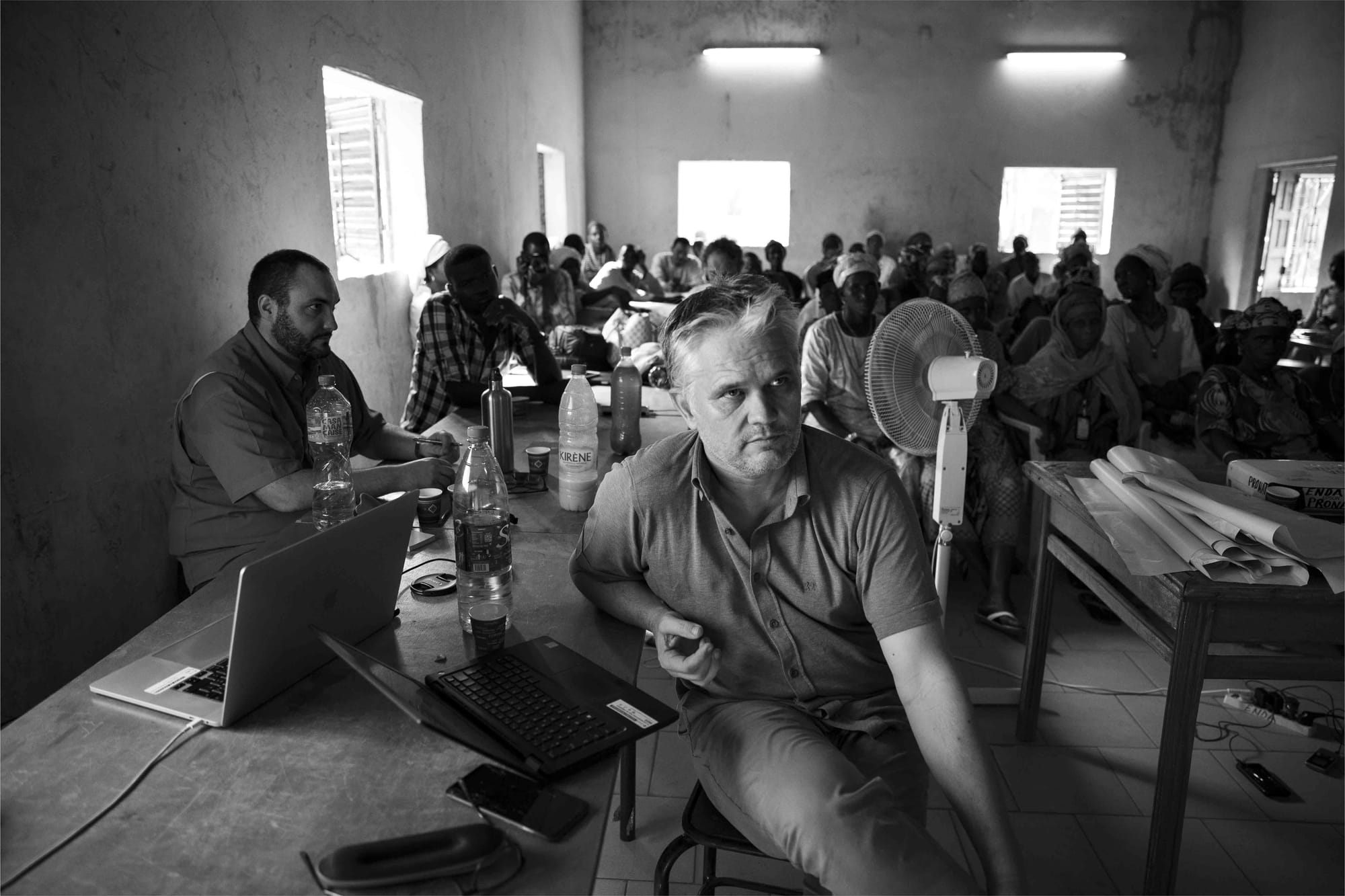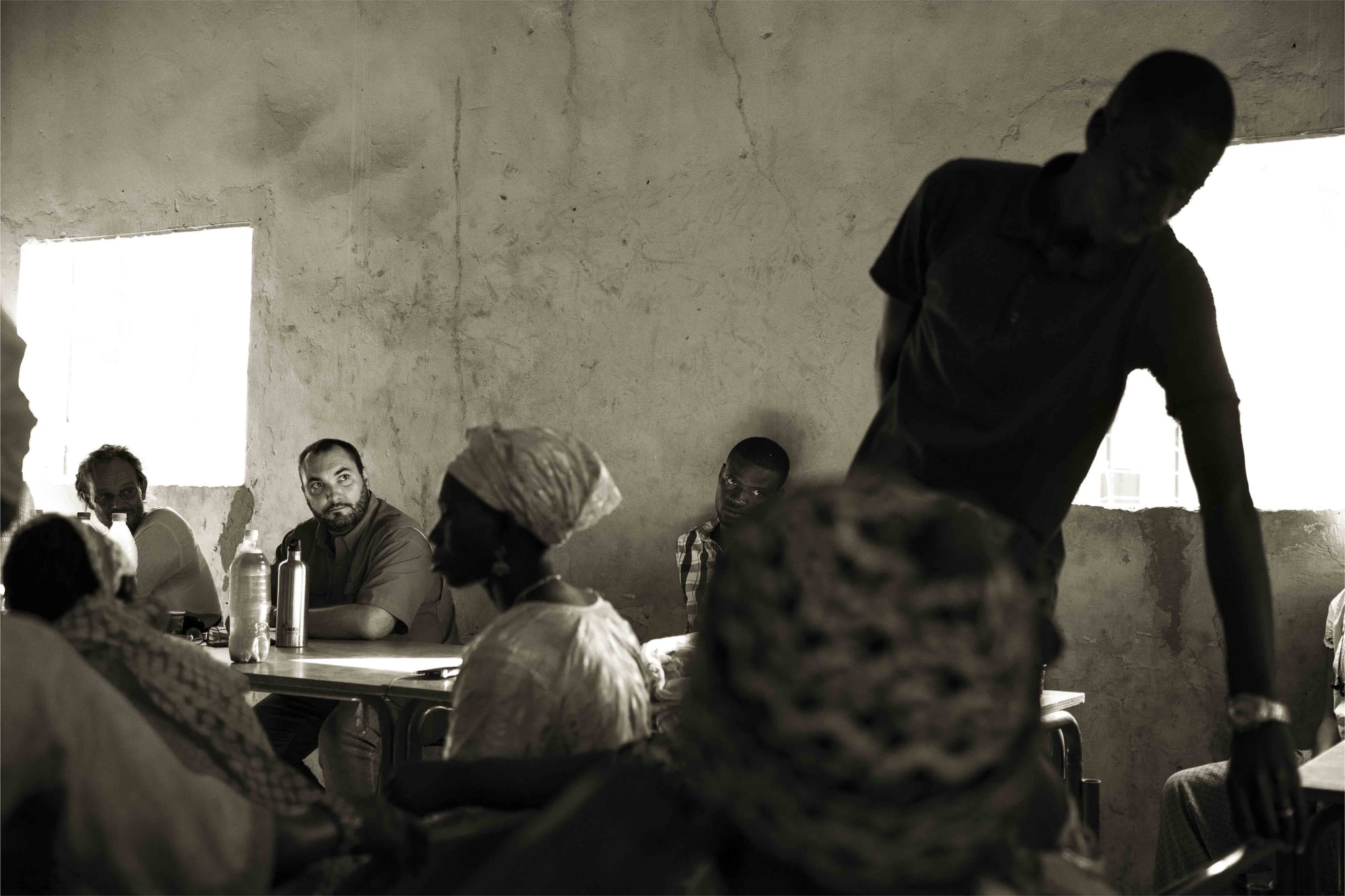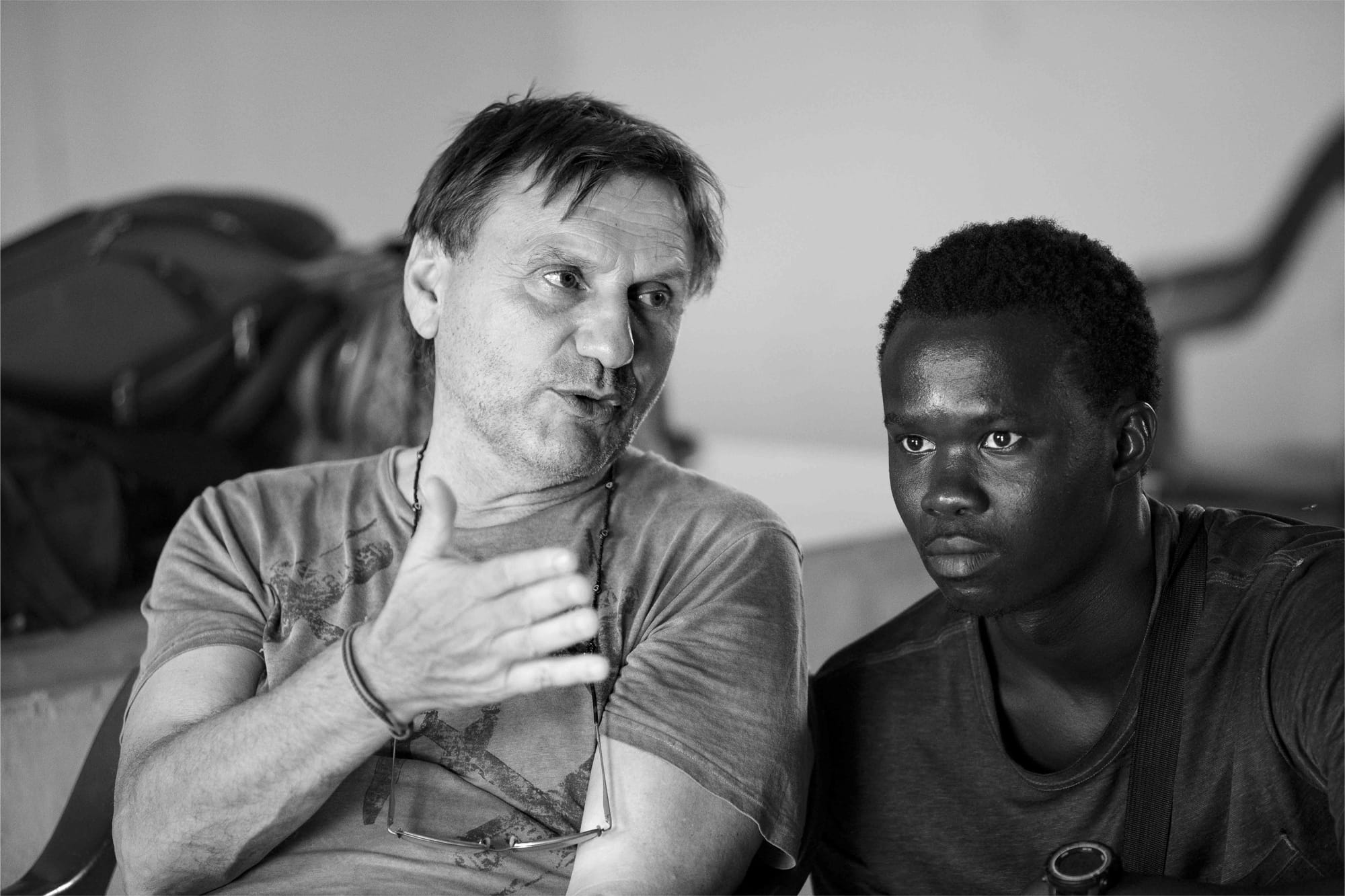Design workshops
In multi-stakeholder workshops, researchers and farmers co-design innovations to improve farming systems' resilience.
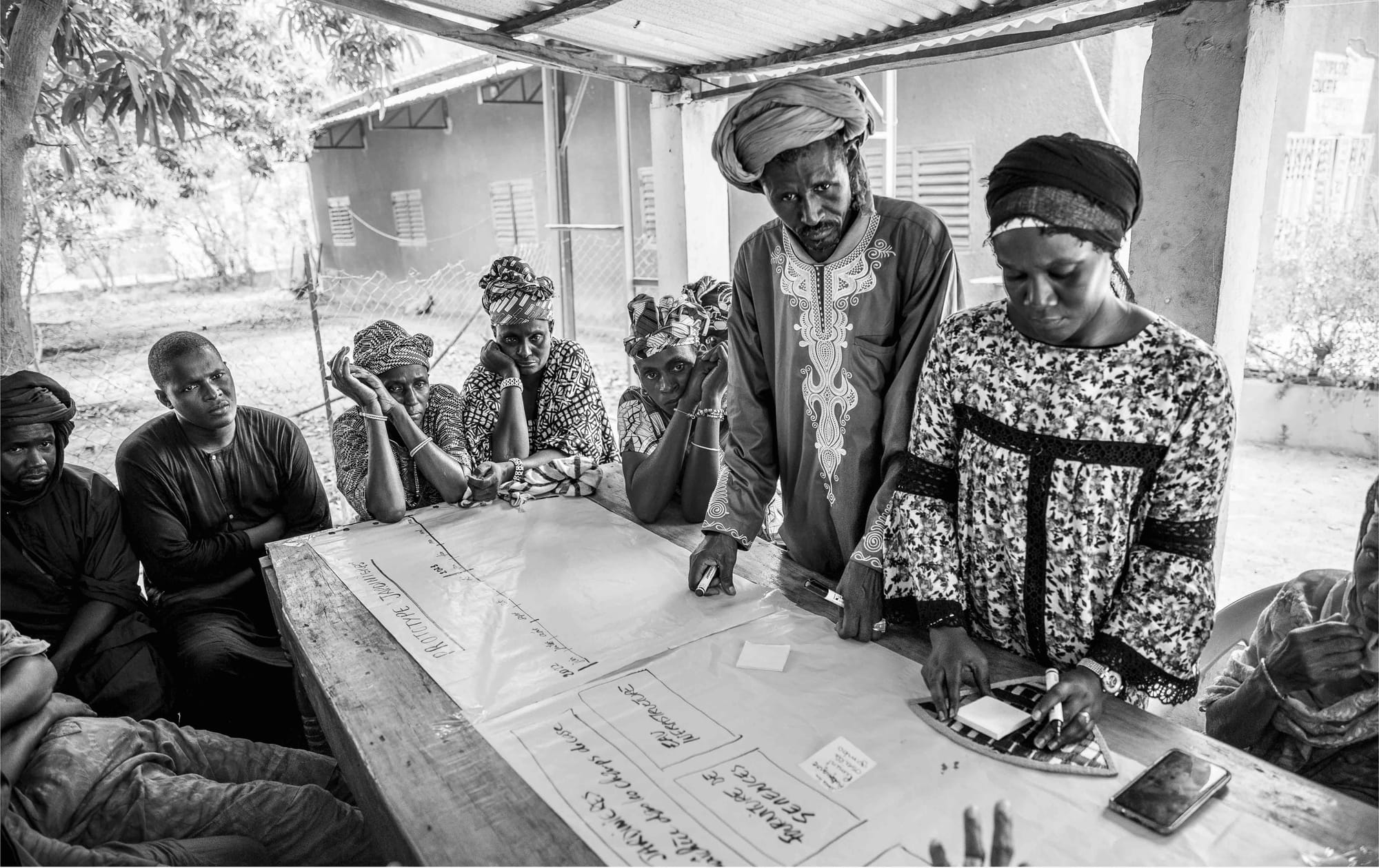
Local problems, local solutions
Agroecologists believe that solutions to local agronomic problems must be built by local communities themselves. Therefore, researchers do not come to distil knowledge. Instead, their role is to build and test participatory methods that stimulate collective intelligence.
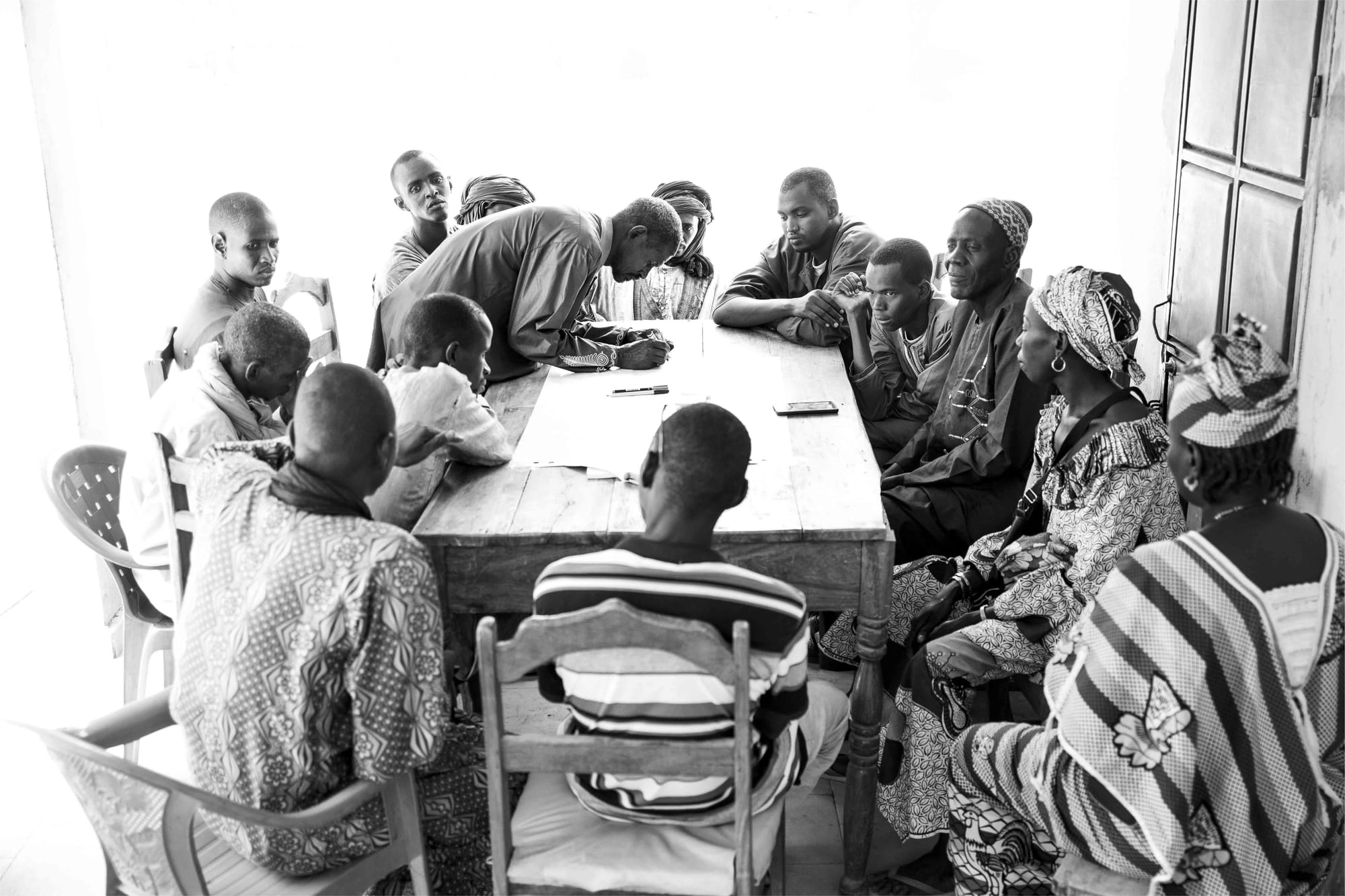
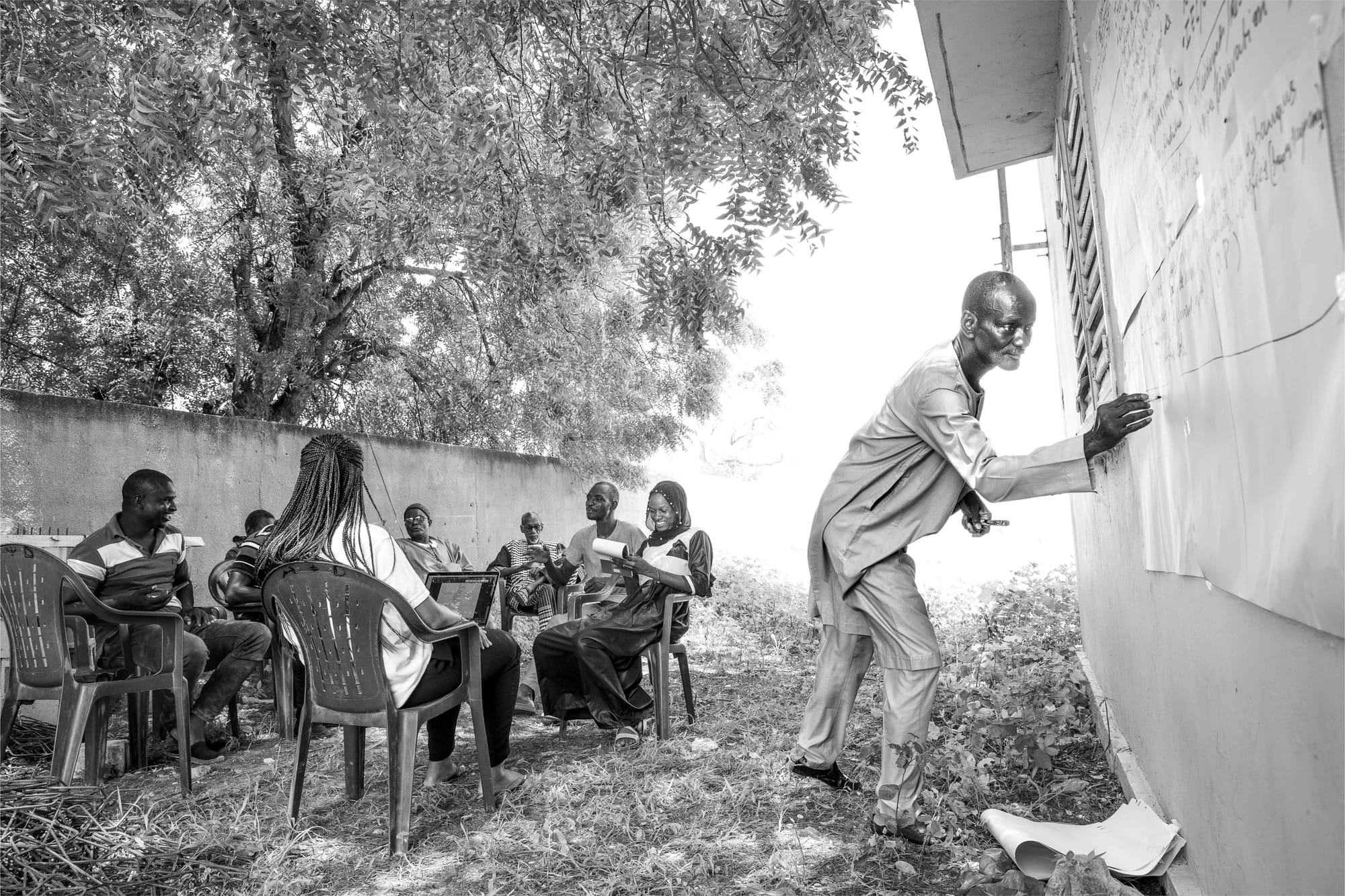
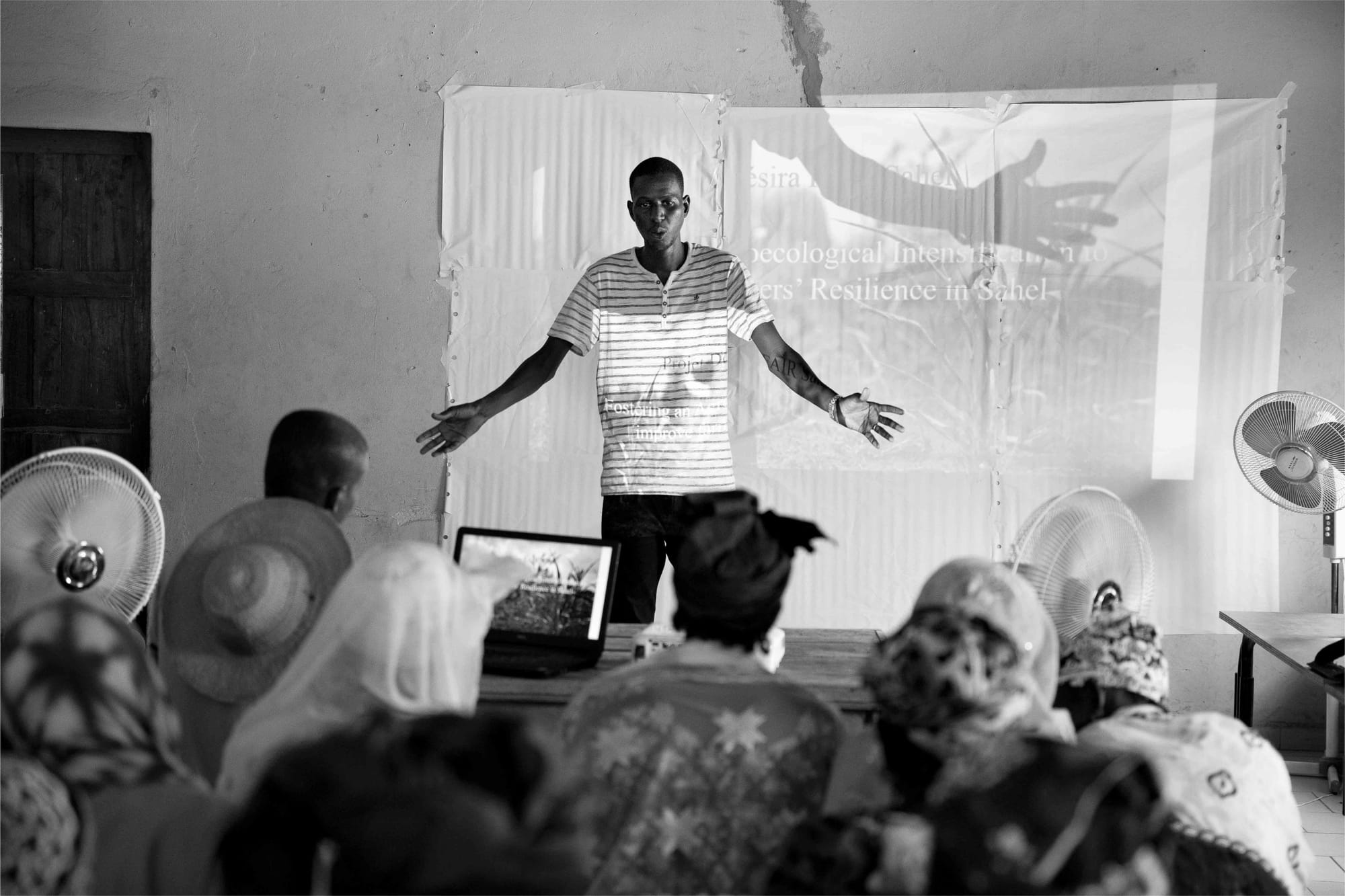
Co-designing innovative solutions
Through multi-stakeholder workshops, researchers open spaces for expression and creativity allowing rural communities to better understand the root causes of their agronomic problems and to design solutions.
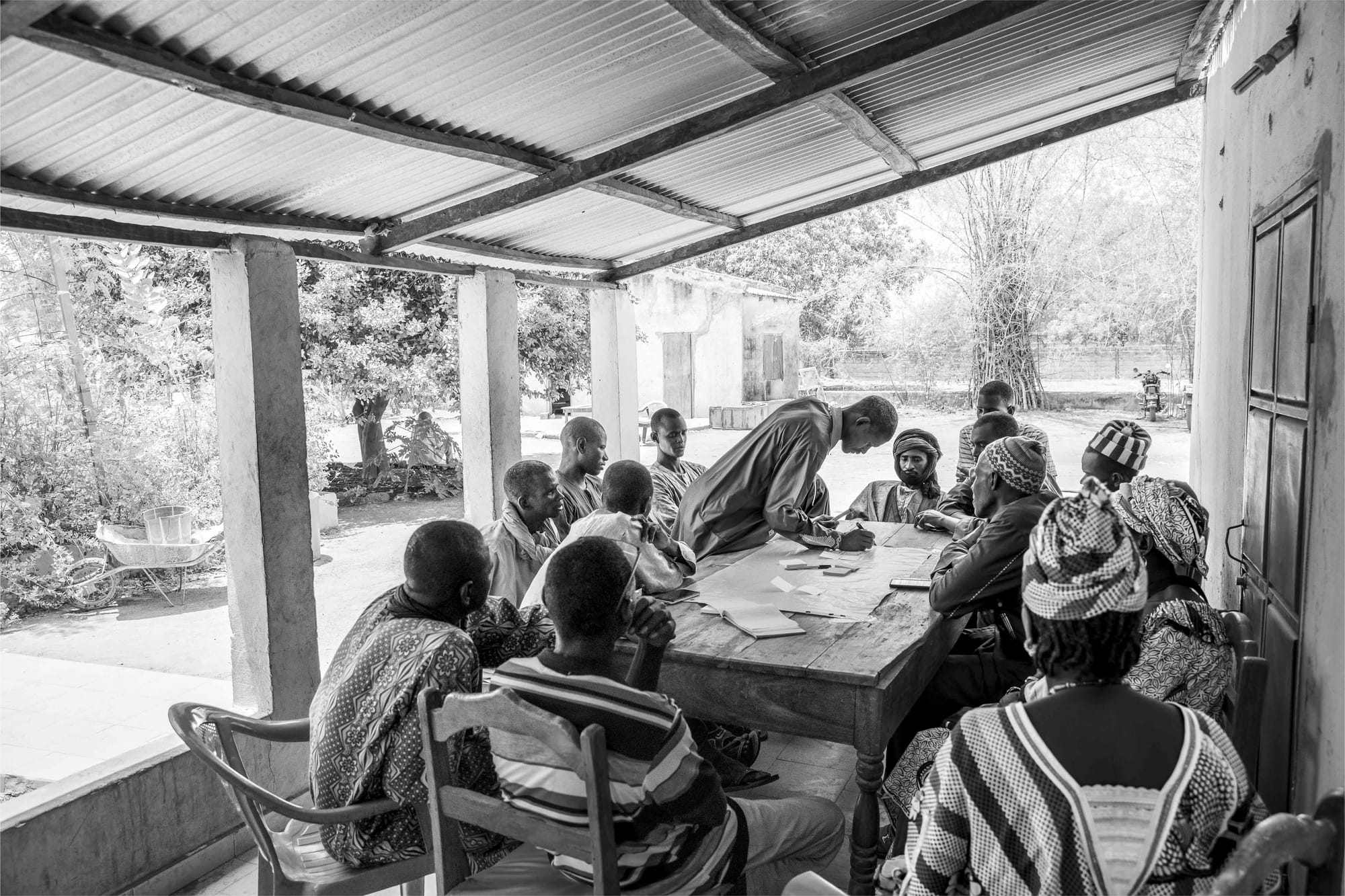
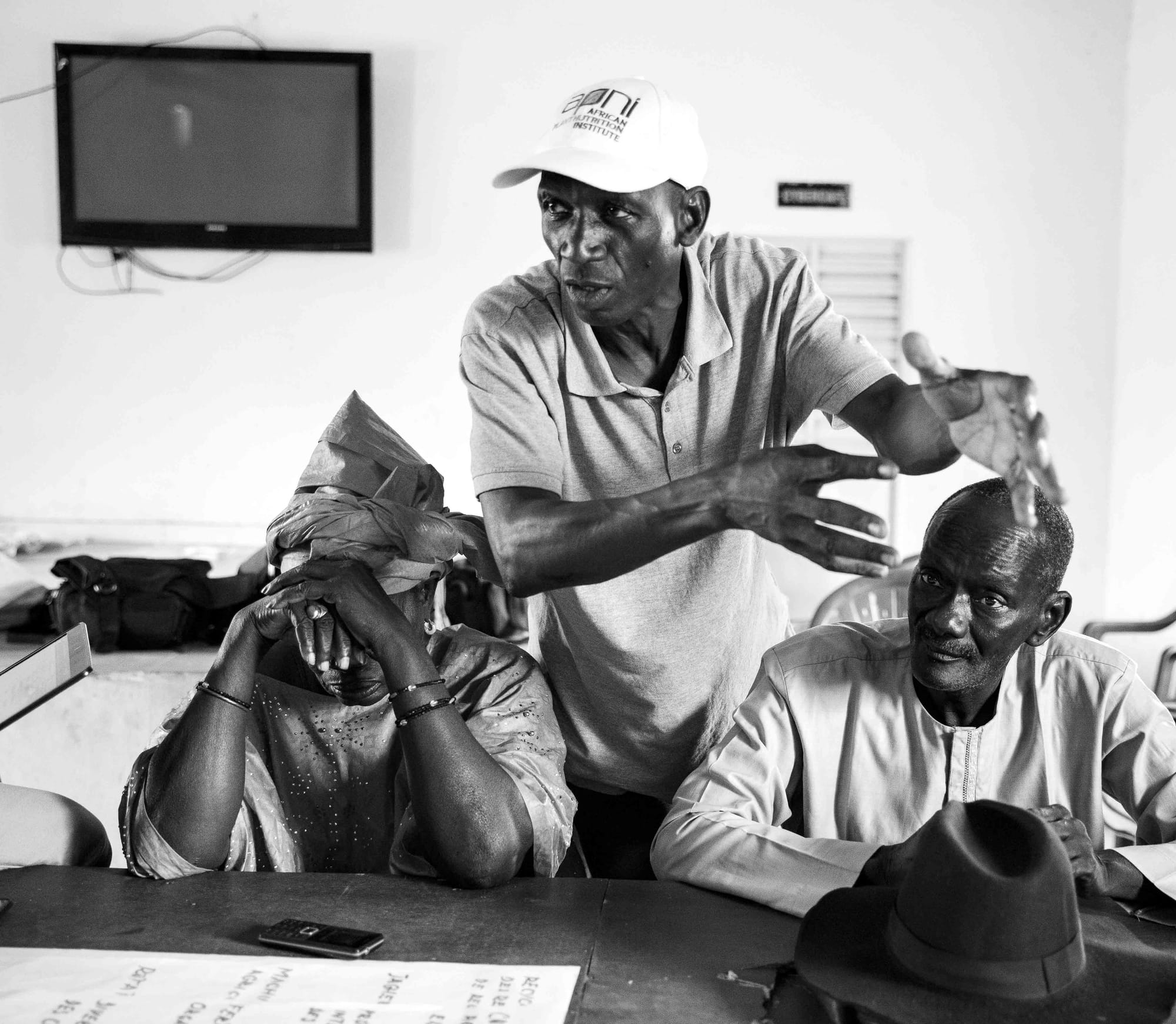
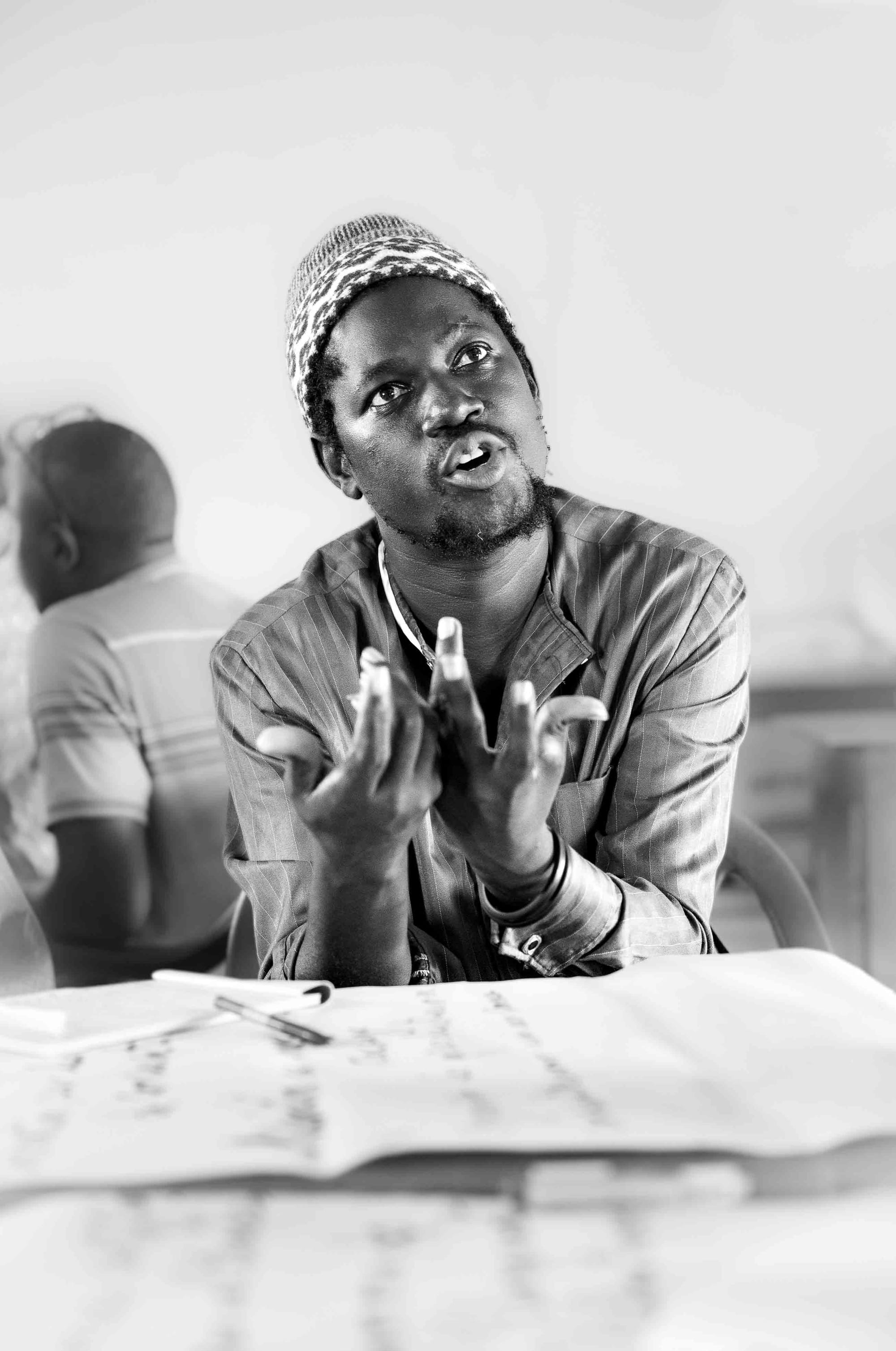
Organized participation
The workshops are based on an organized exchange between a facilitation team and a group of participants. For instance in Ndiob (Senegal, August 2022), 50 farmers were asked to identify the main constraints weighing on production, as well as the underlying causes; then were then encouraged to propose technical levers that could potentially remove these constraints.
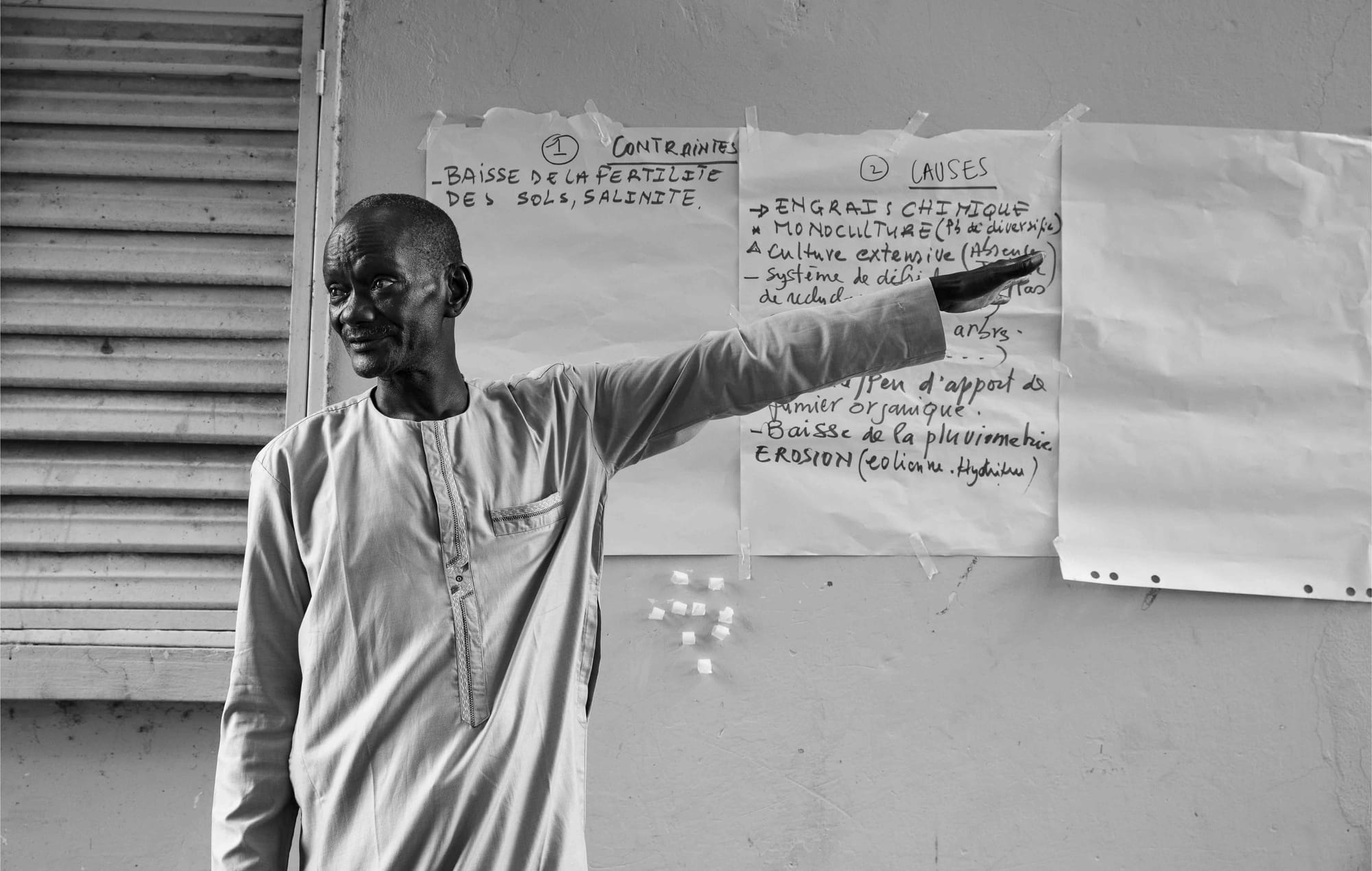
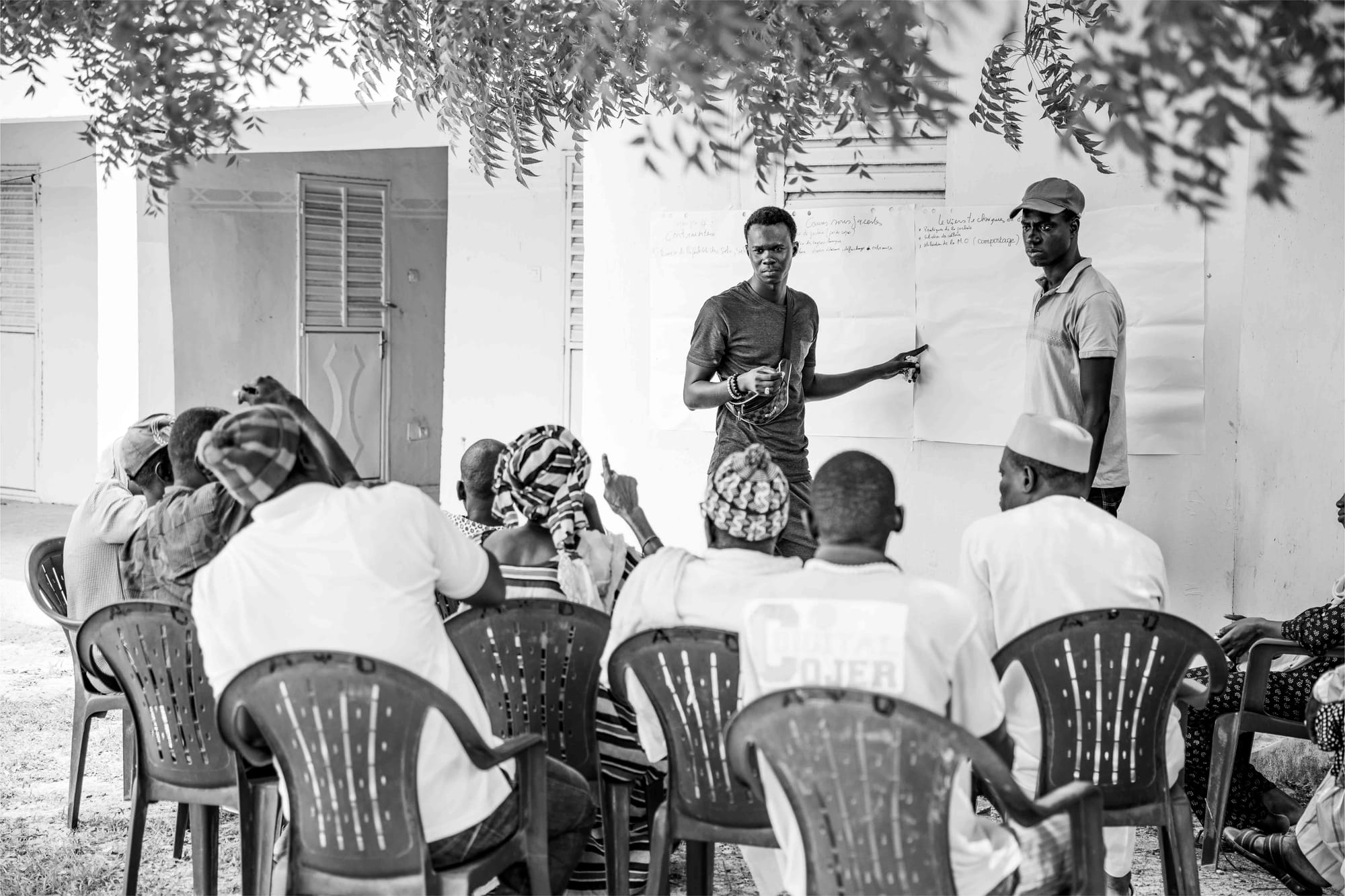
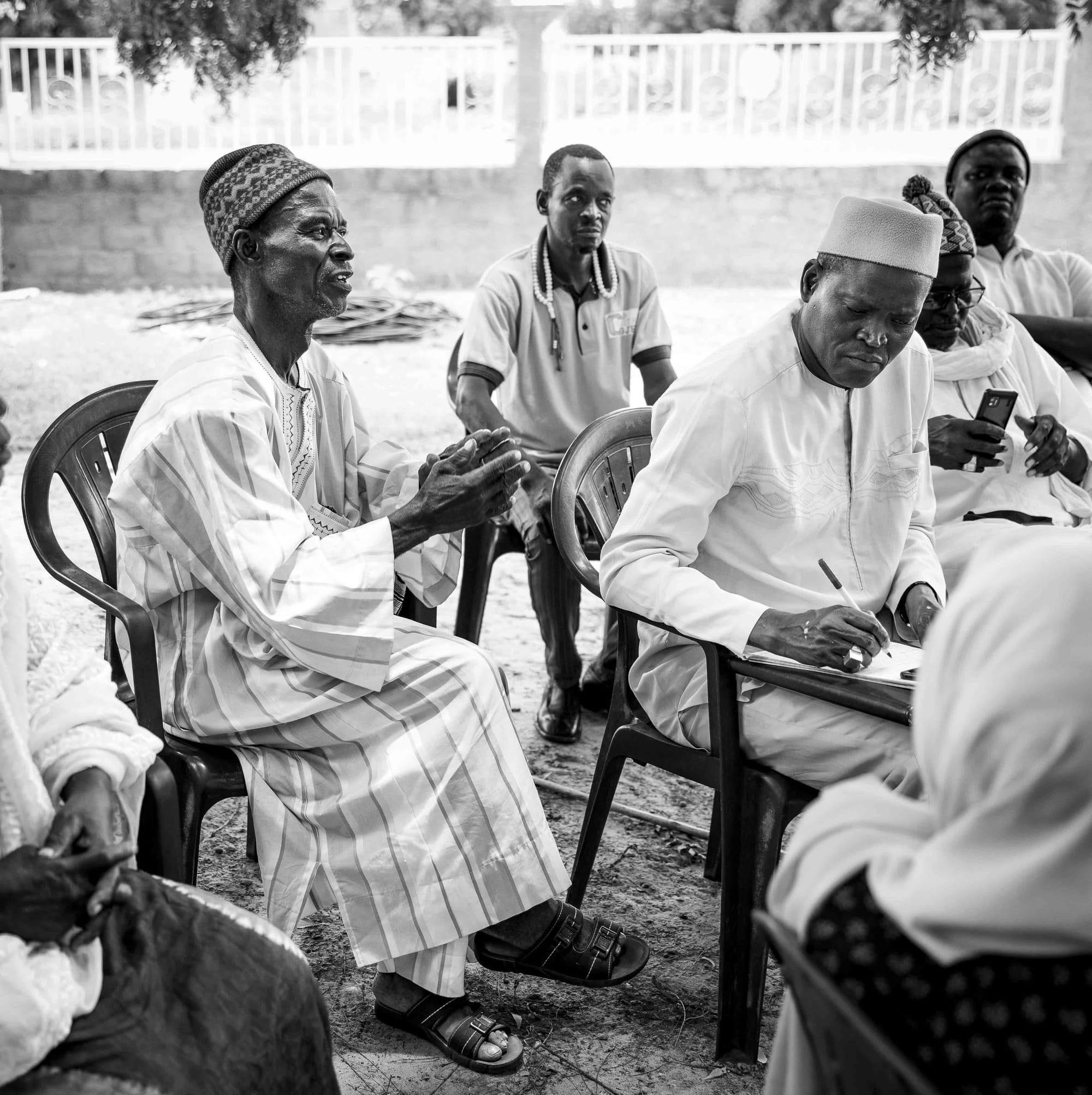
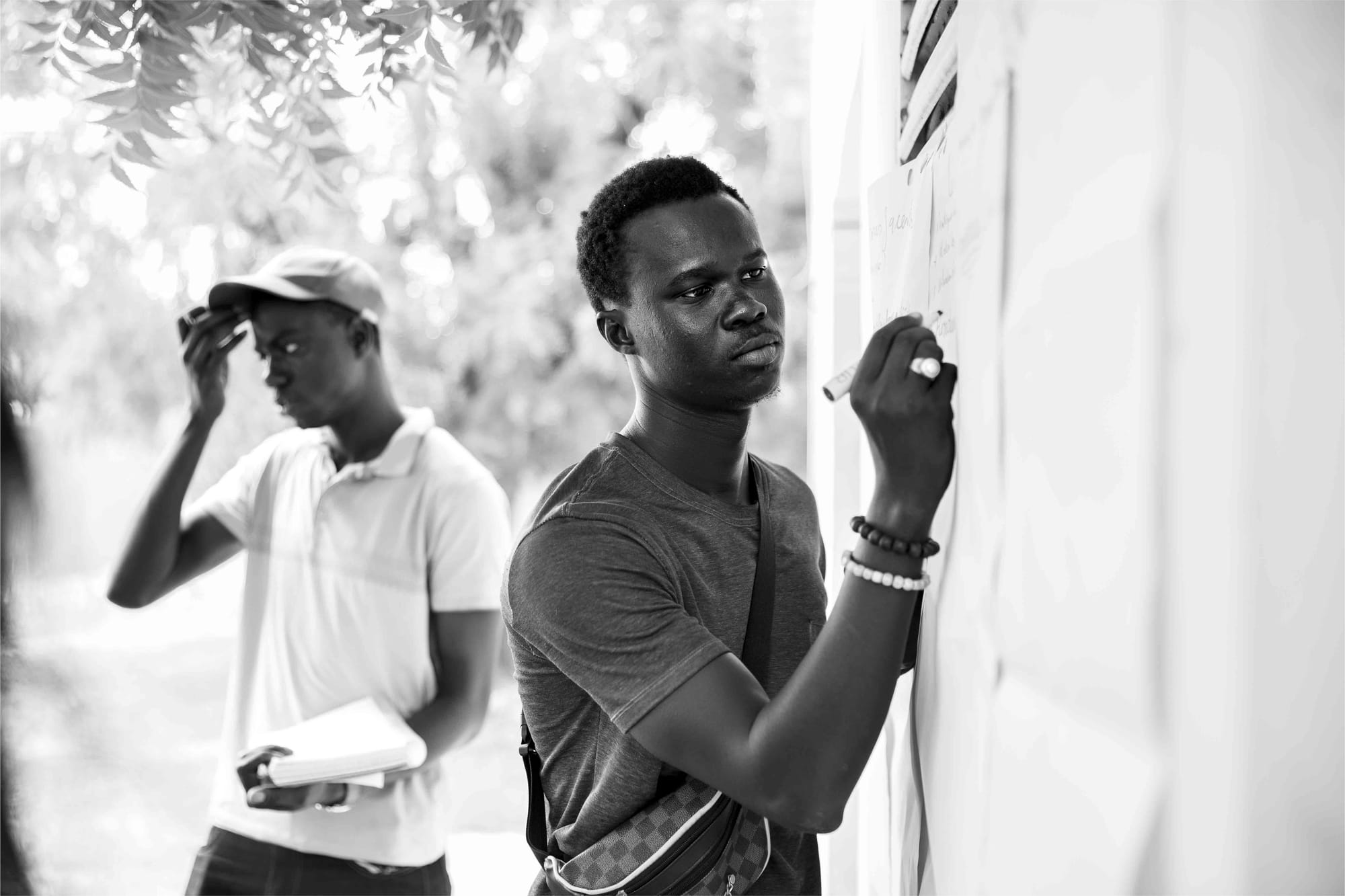
Padex, post-it and markers
Bringing out complex ideas does not necessarily require significant technological means. The main animation kit of researchers is composed of padex, post-its and markers.
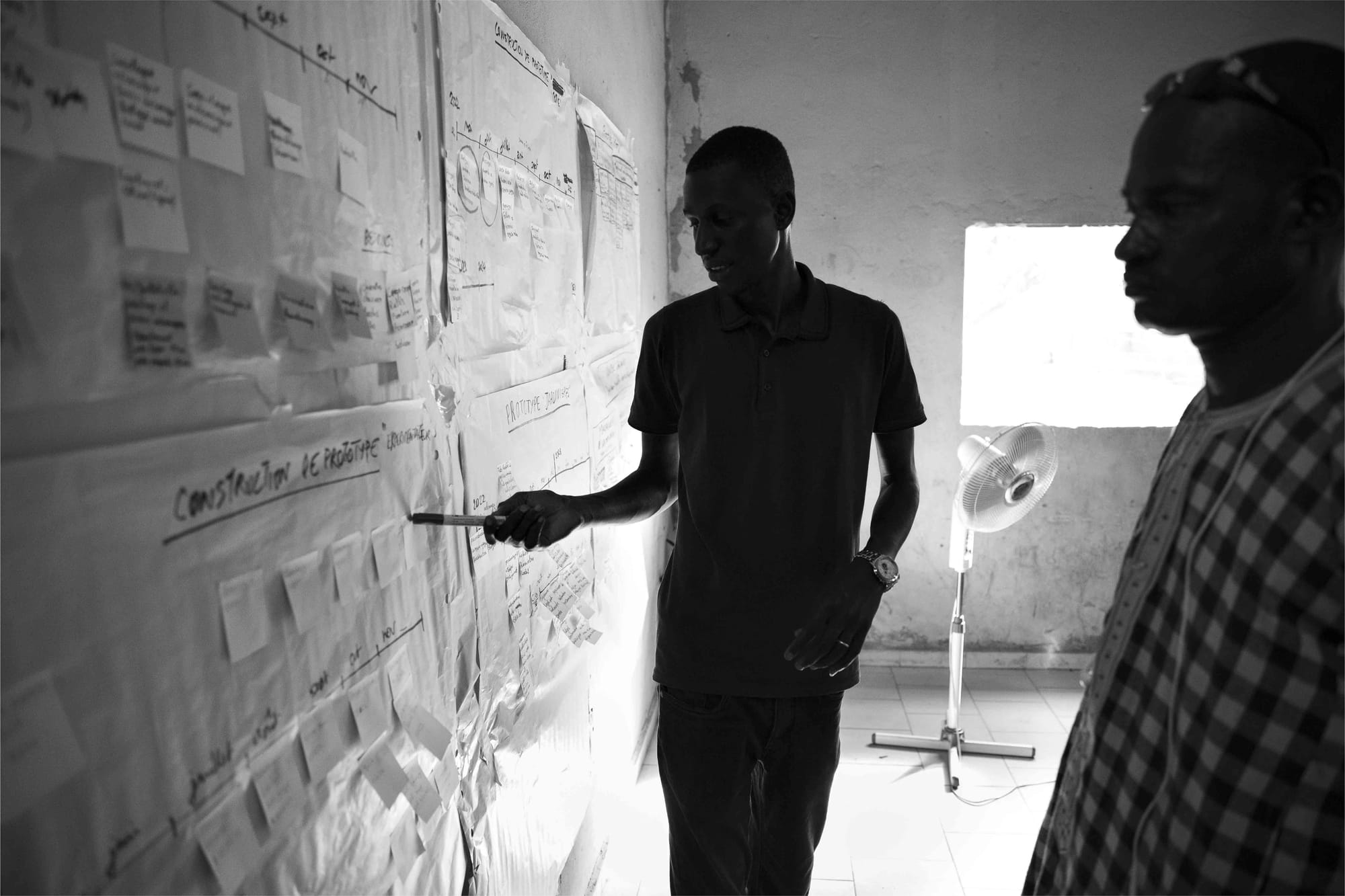
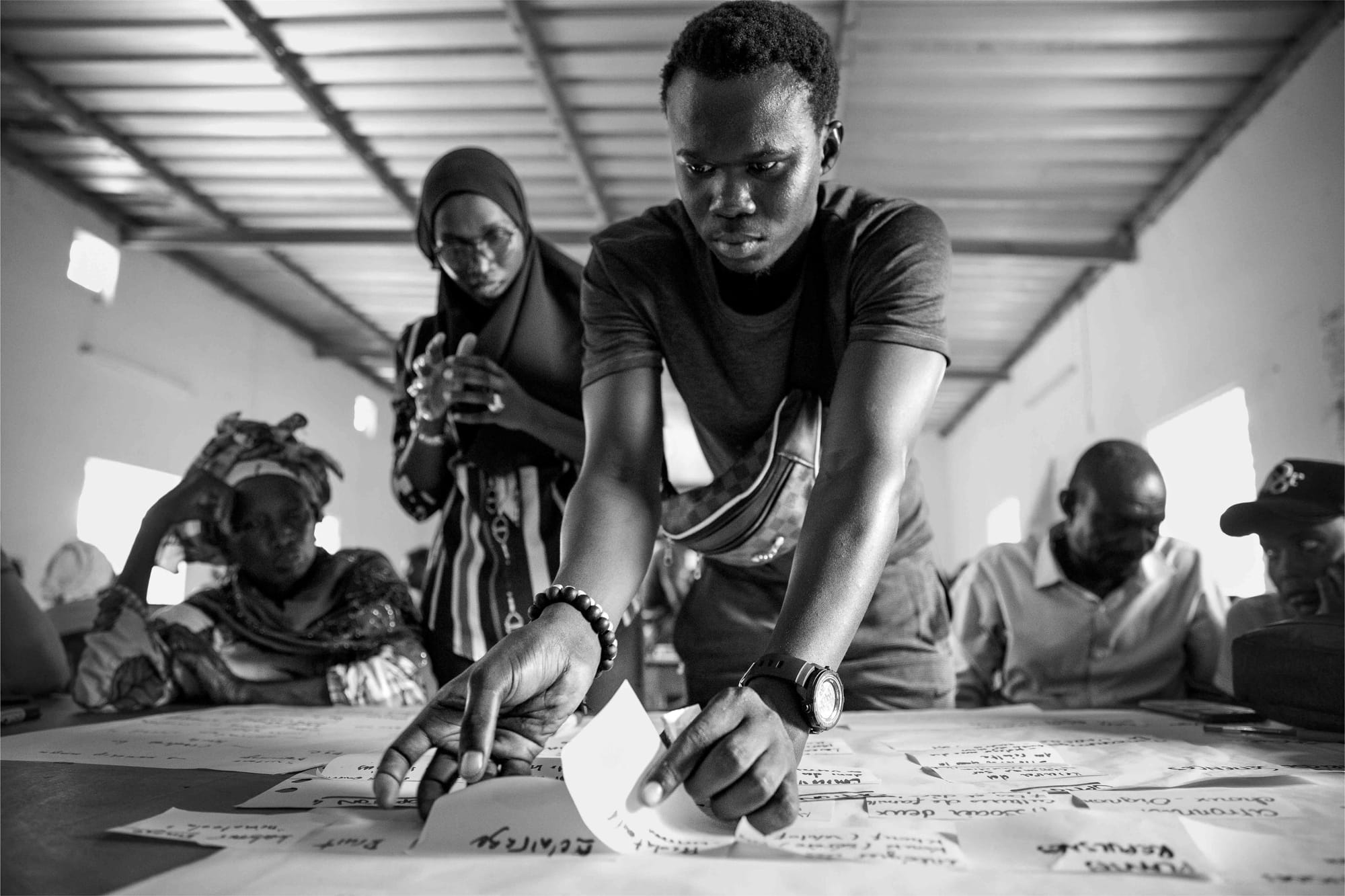
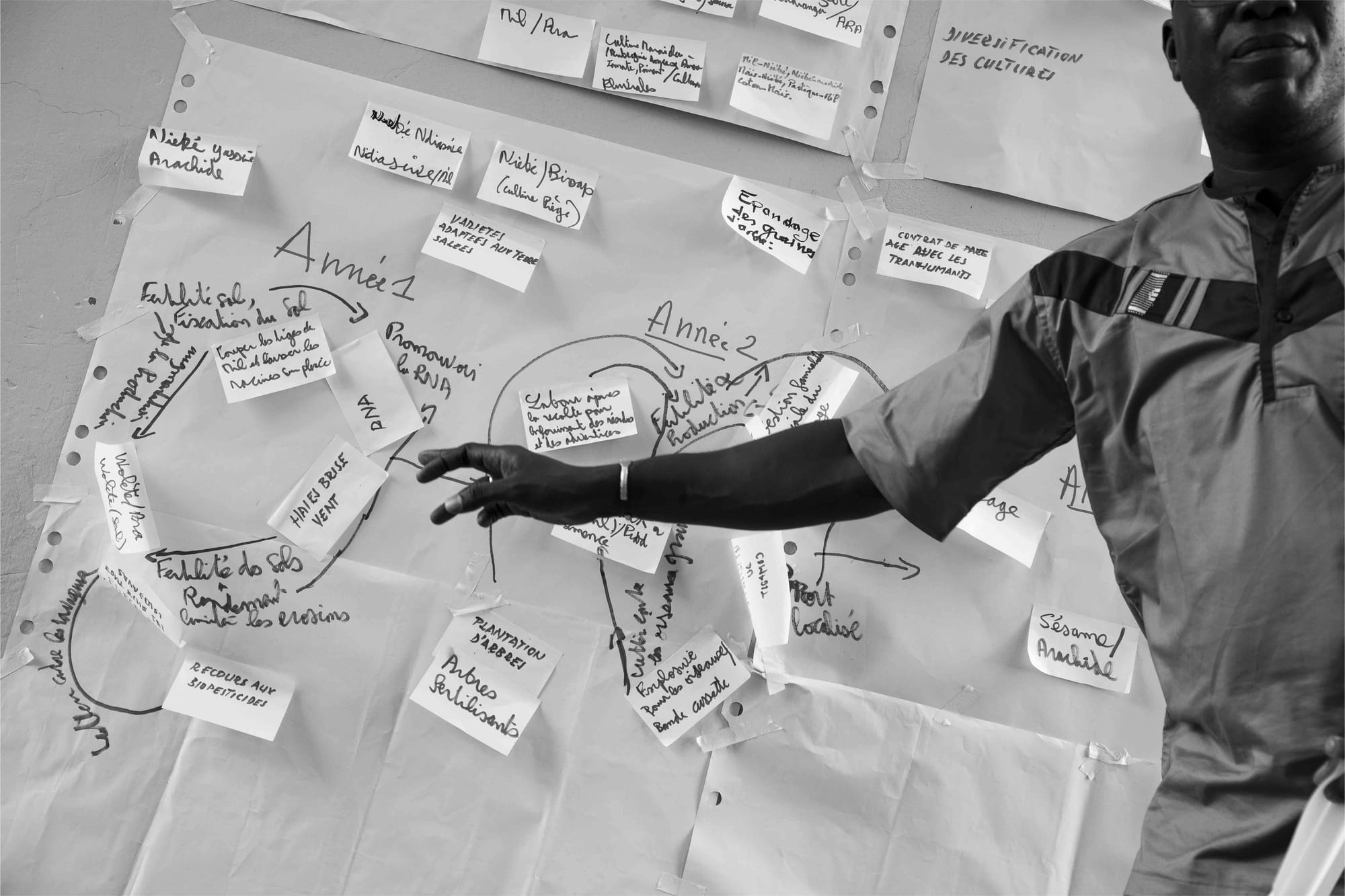
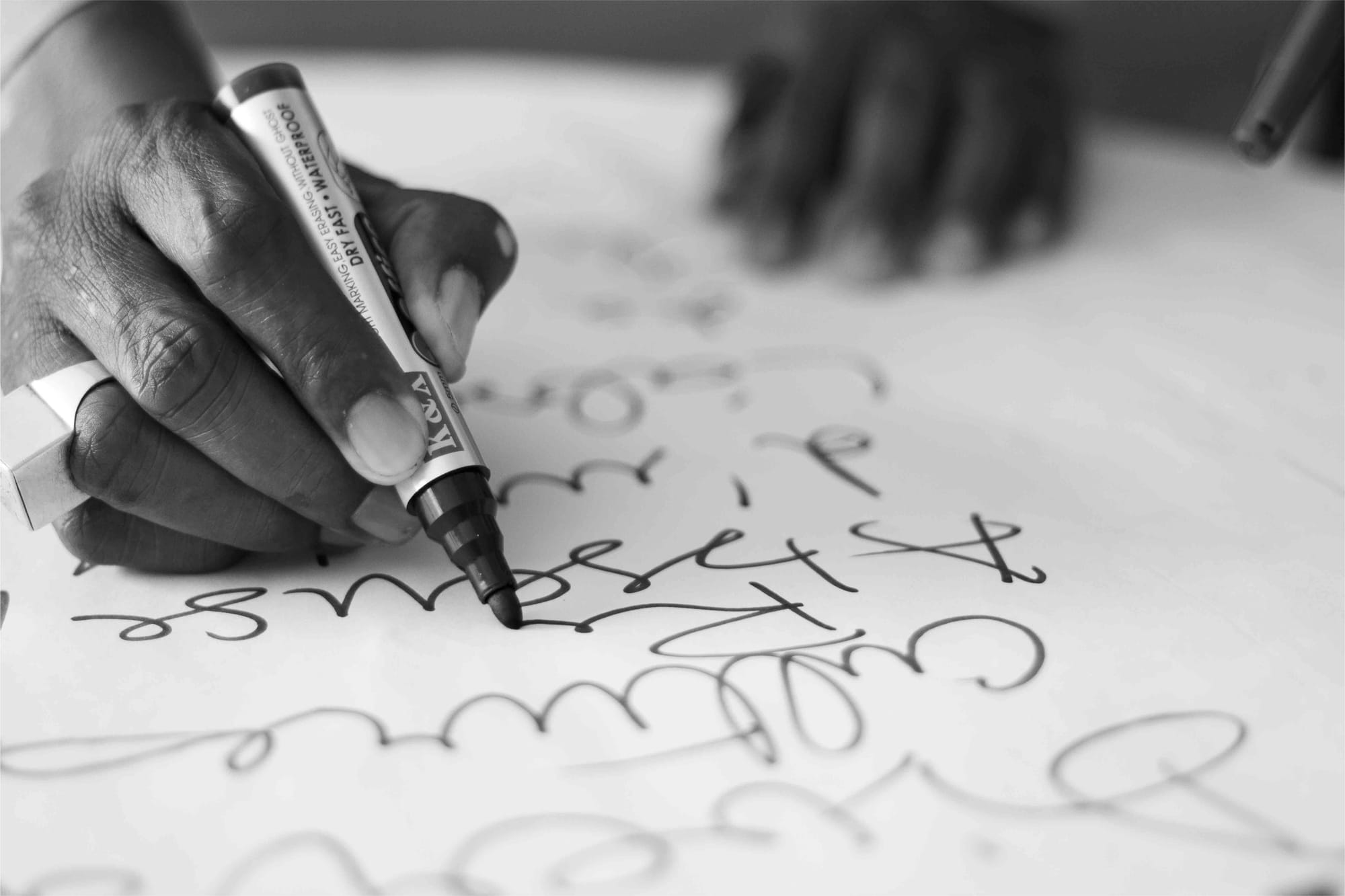
Building skills
During the workshops, community members are asked to lead the group work themselves. This allows a better involvement in the process while strengthening the skills of local actors
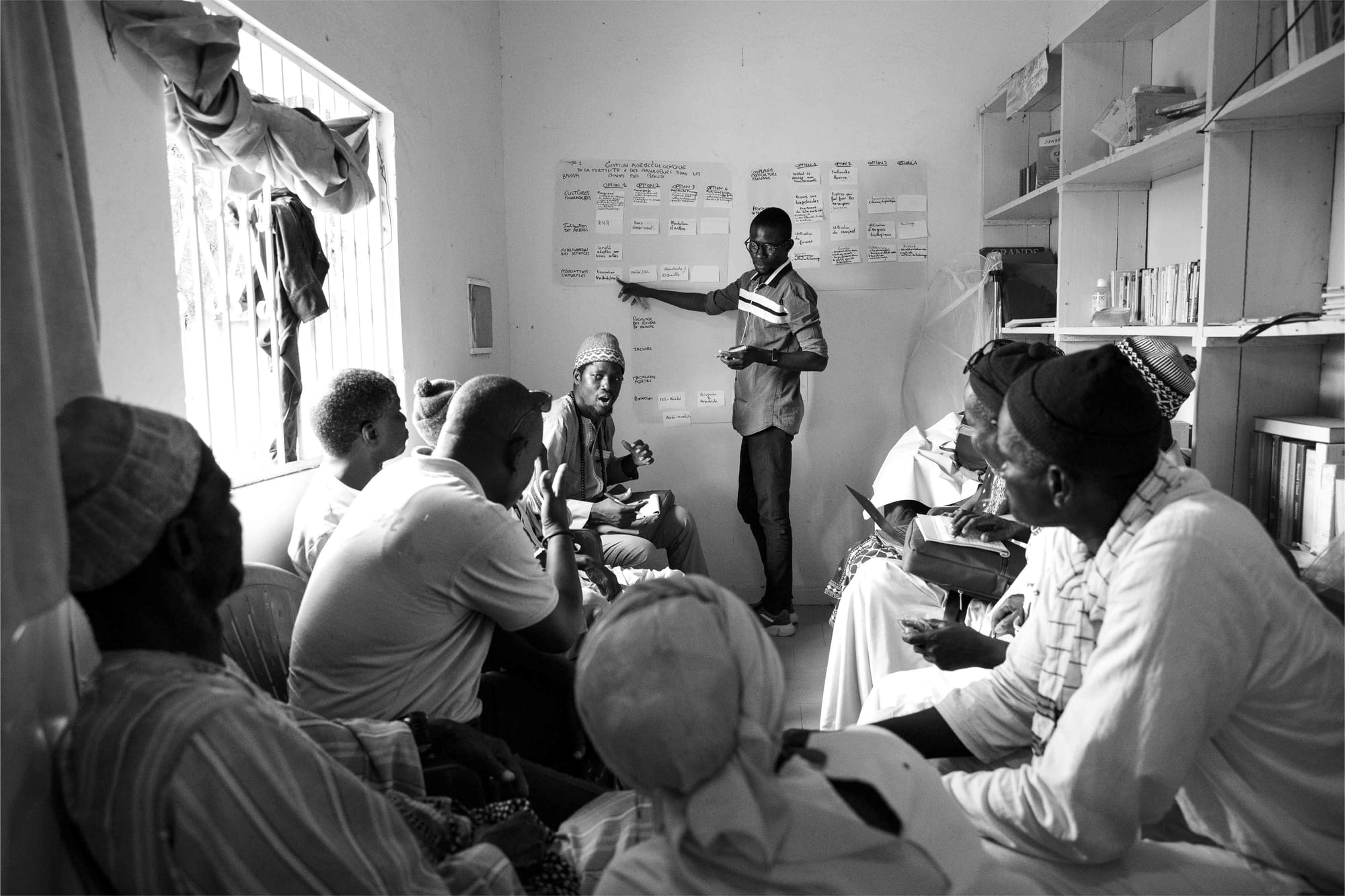
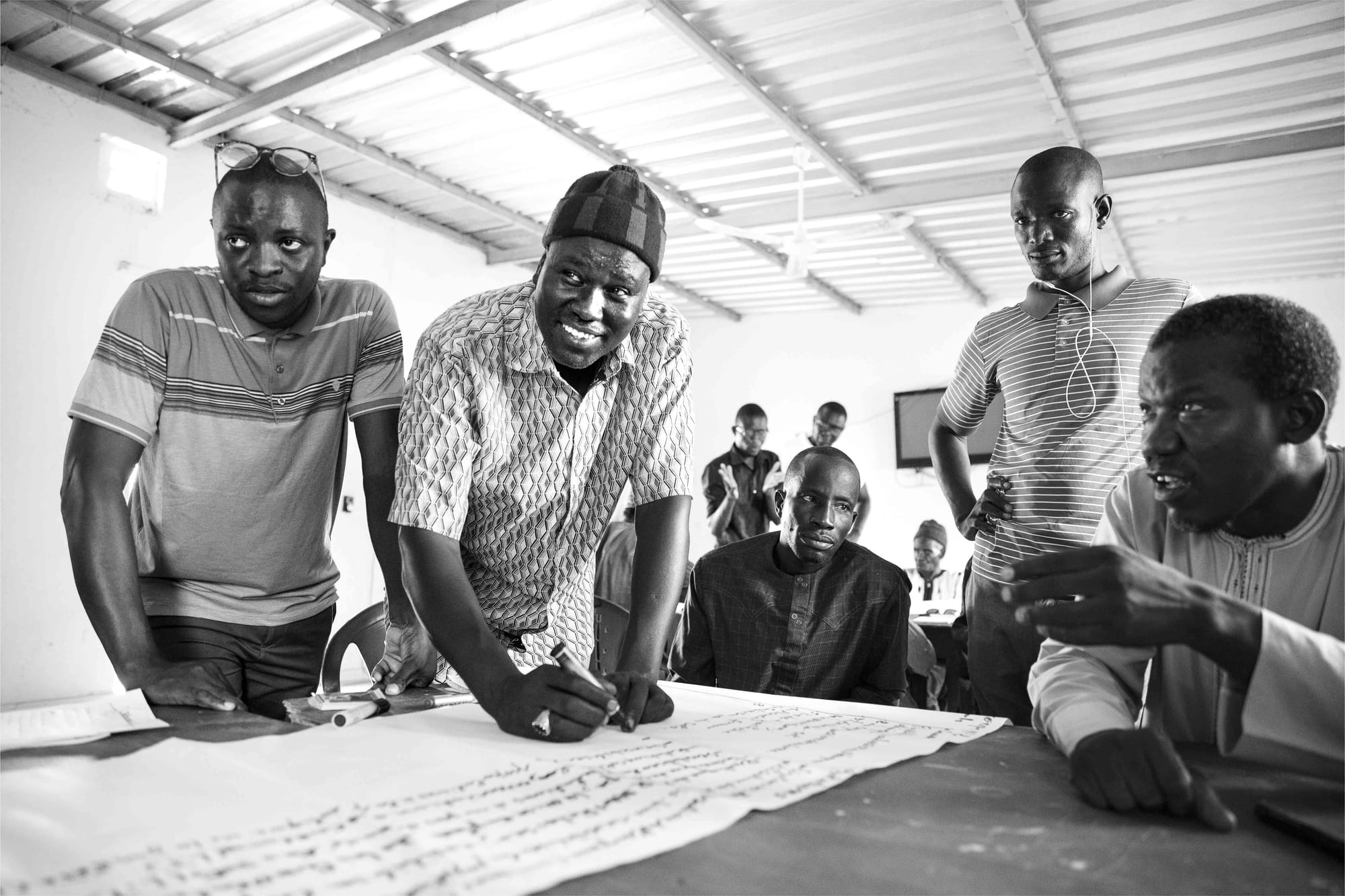
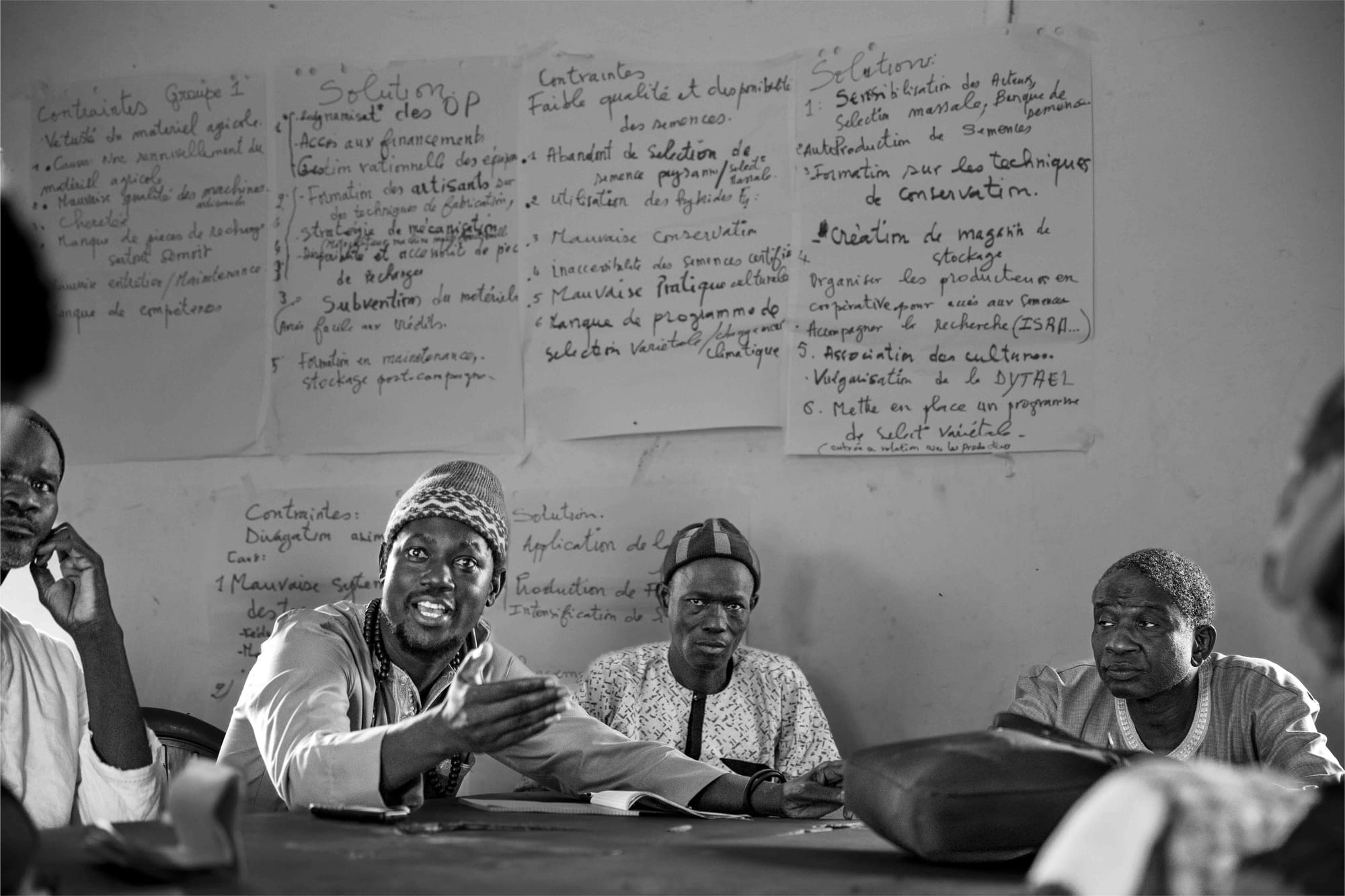
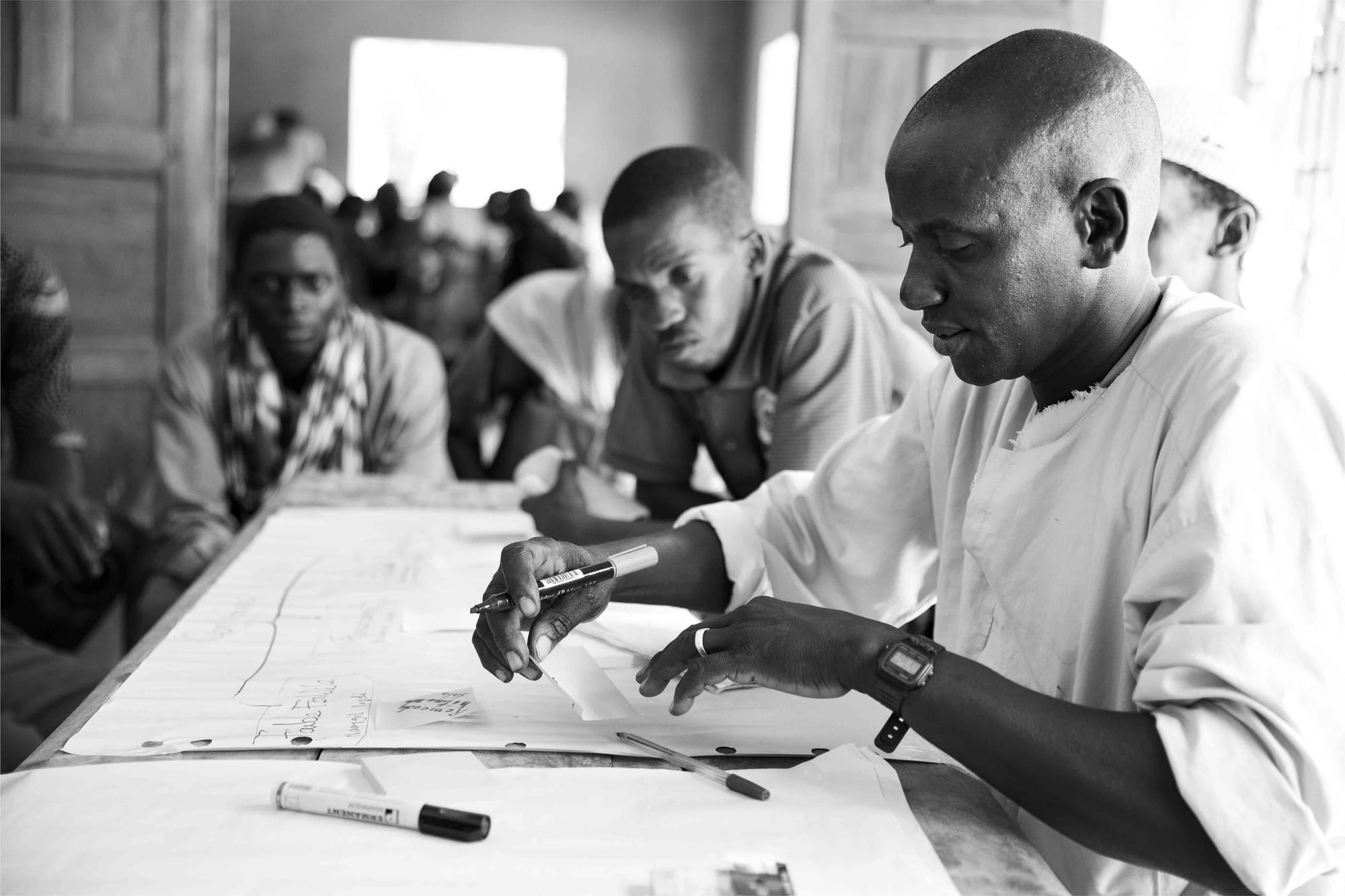
Fatigue
In rural areas, workshops often take place in overheated, poorly ventilated and dimly lit rooms. These difficult conditions can be seen in the attitude of some participants, especially after lunch.
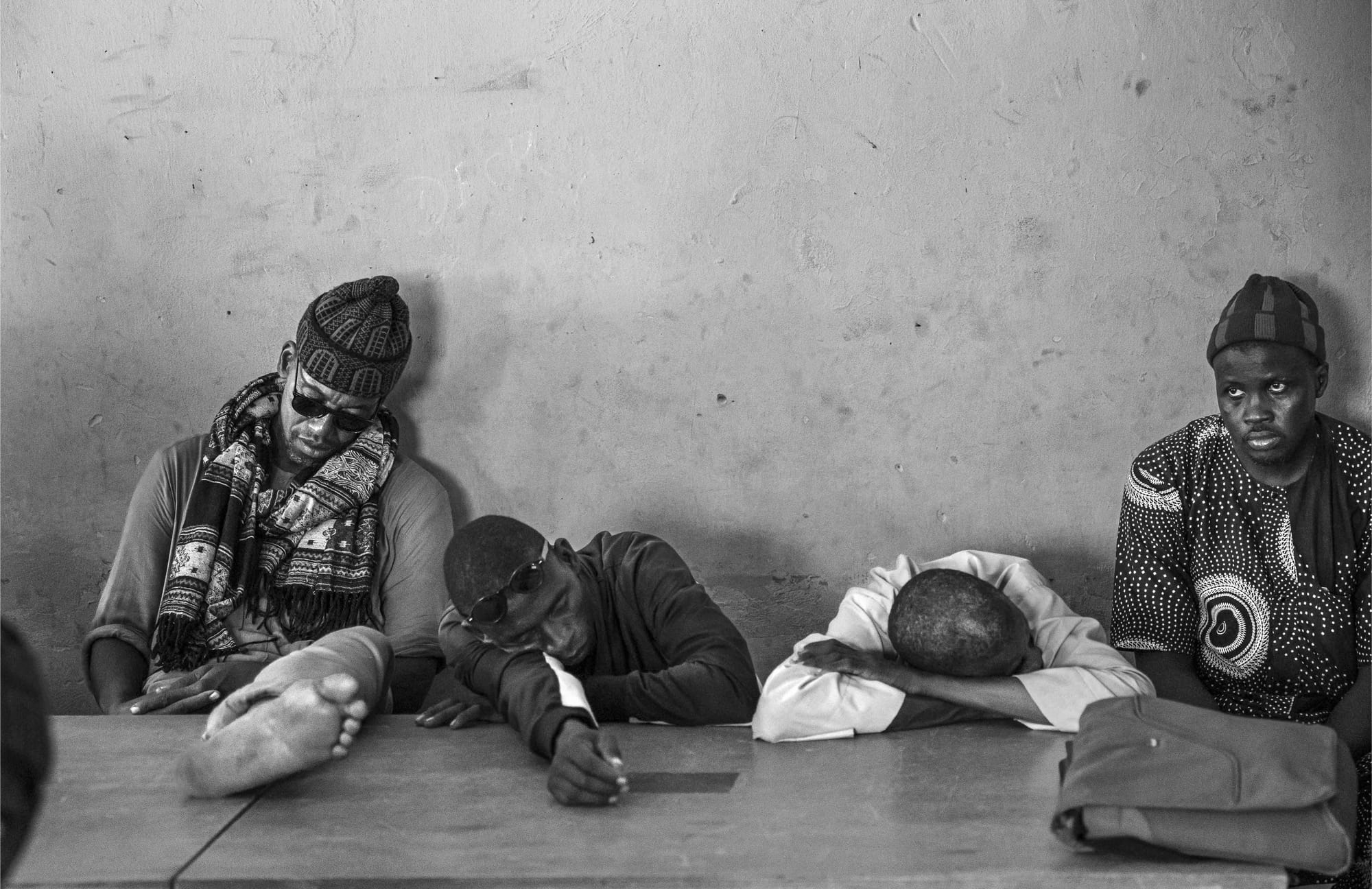
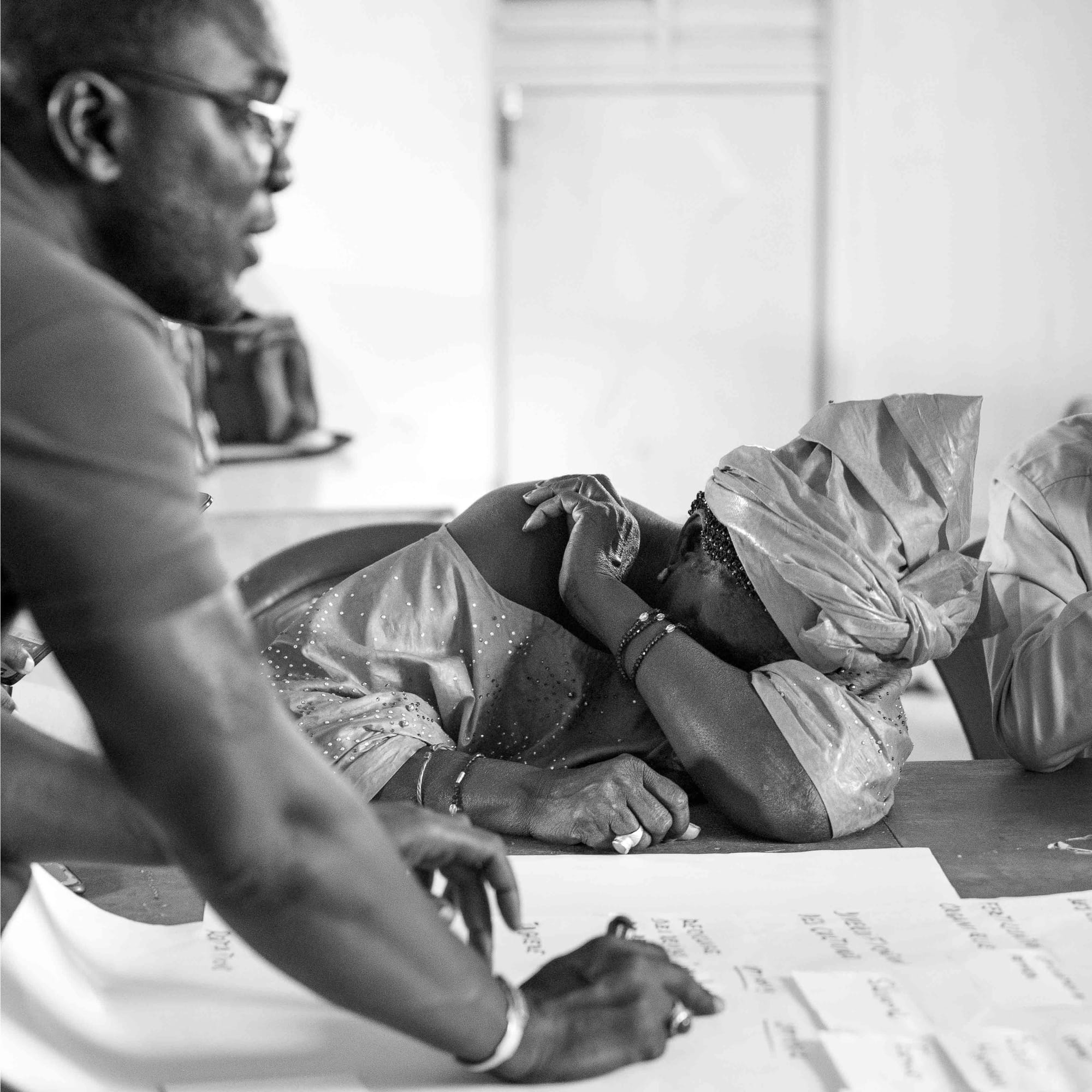
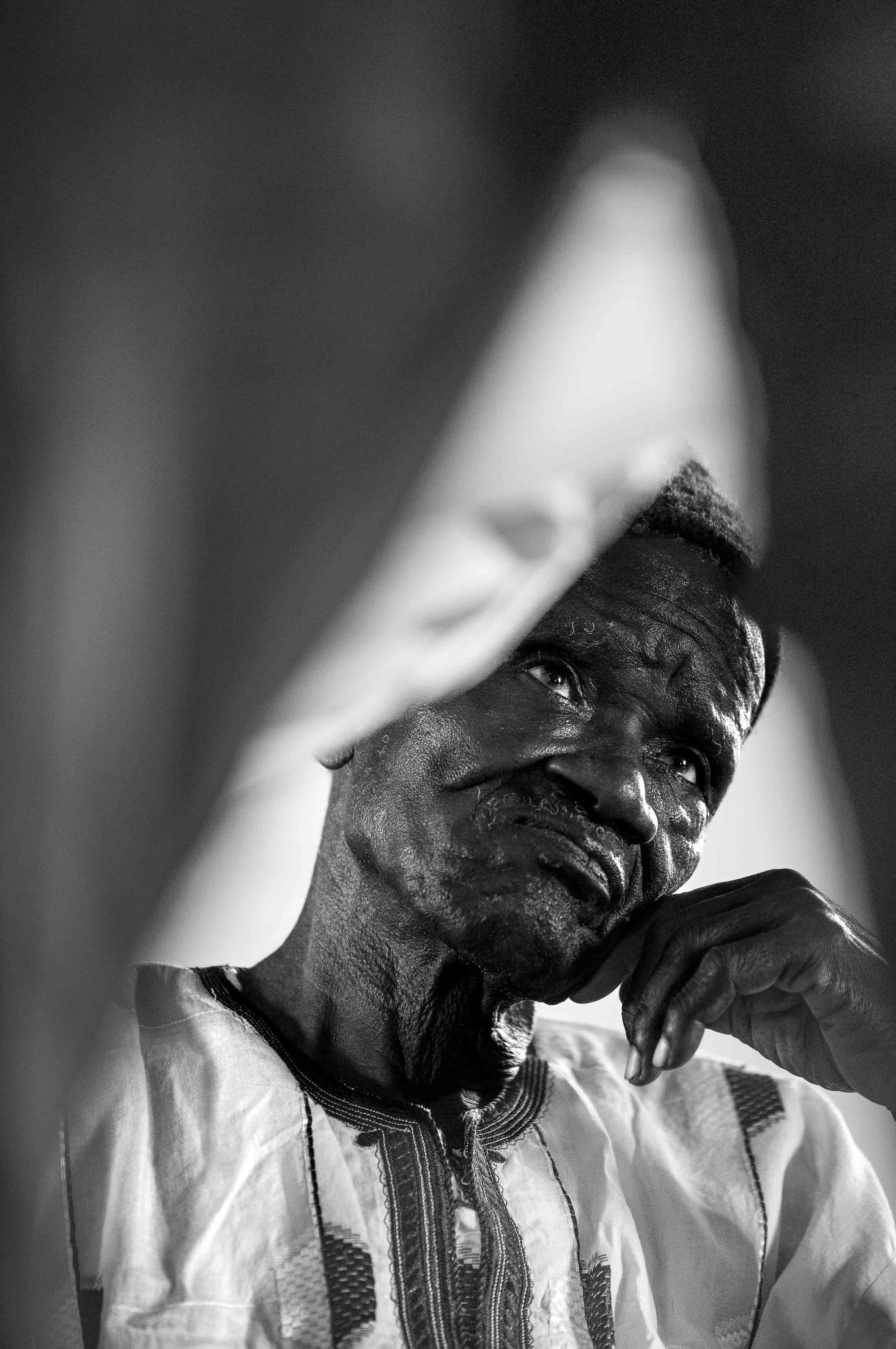
Facilitation and uneven participation
Women and young people are often poorly represented and disadvantaged in working groups for cultural reasons. Facilitators must balance the word and encourage the weakest to speak up.
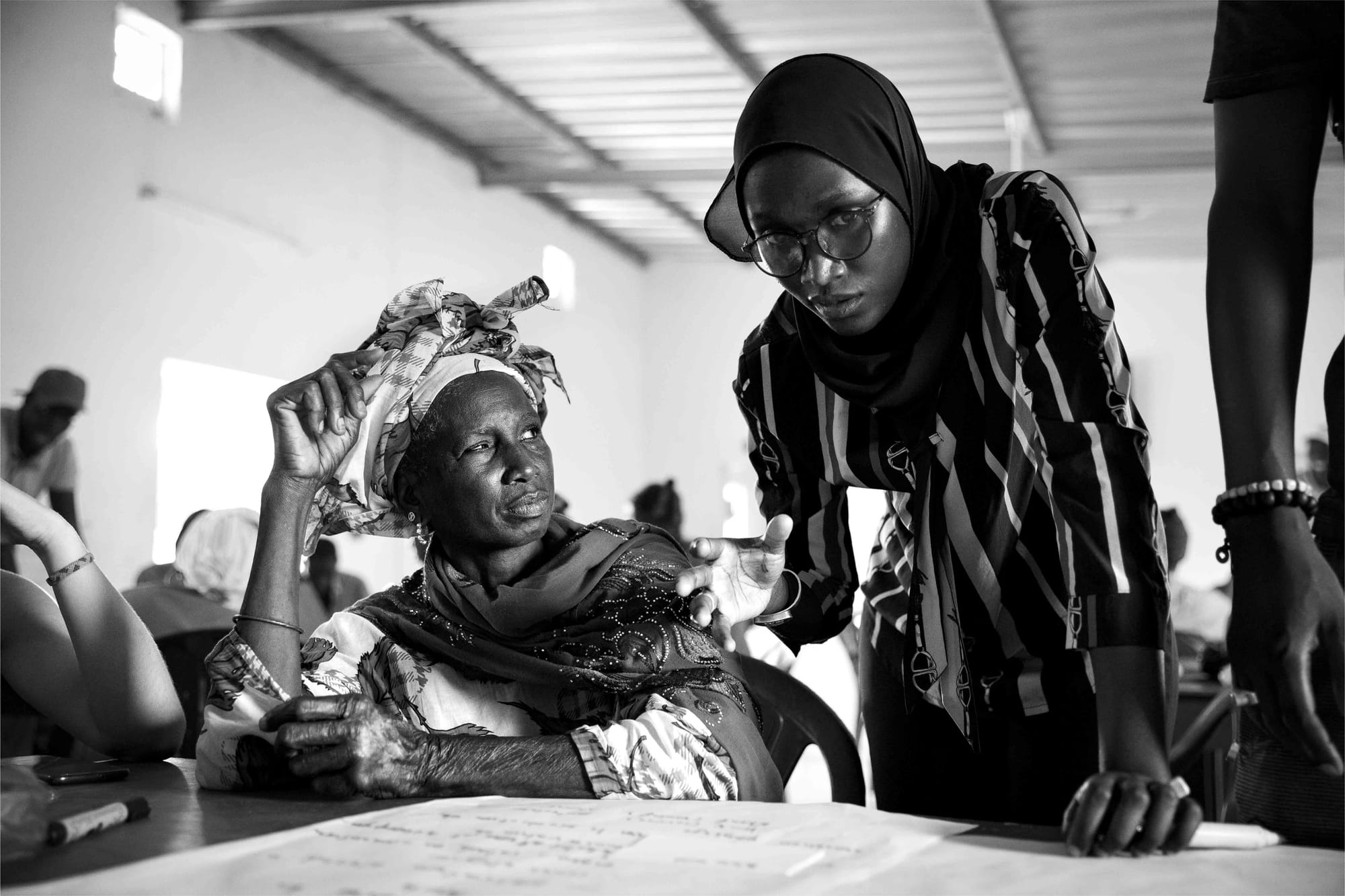
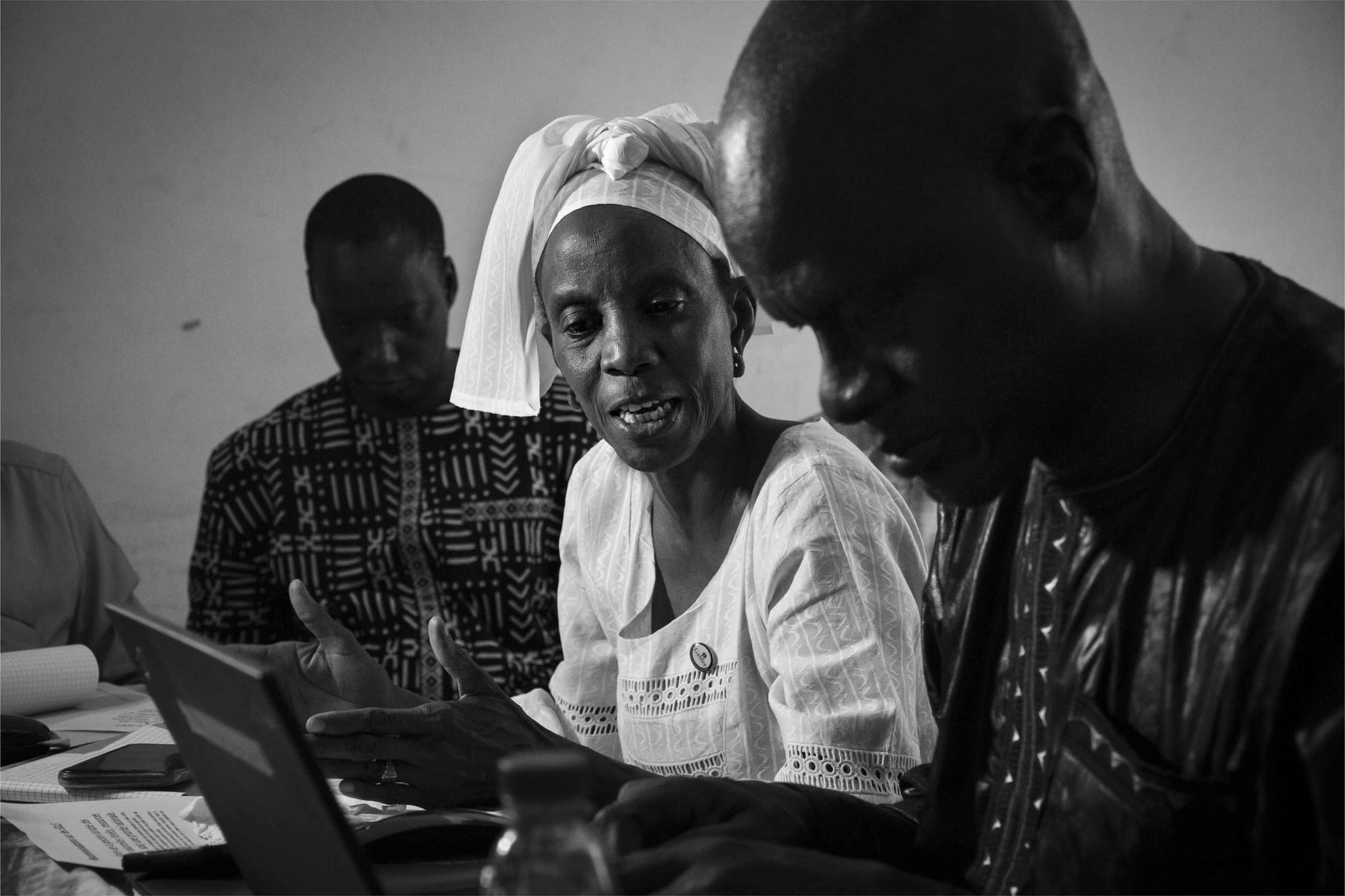
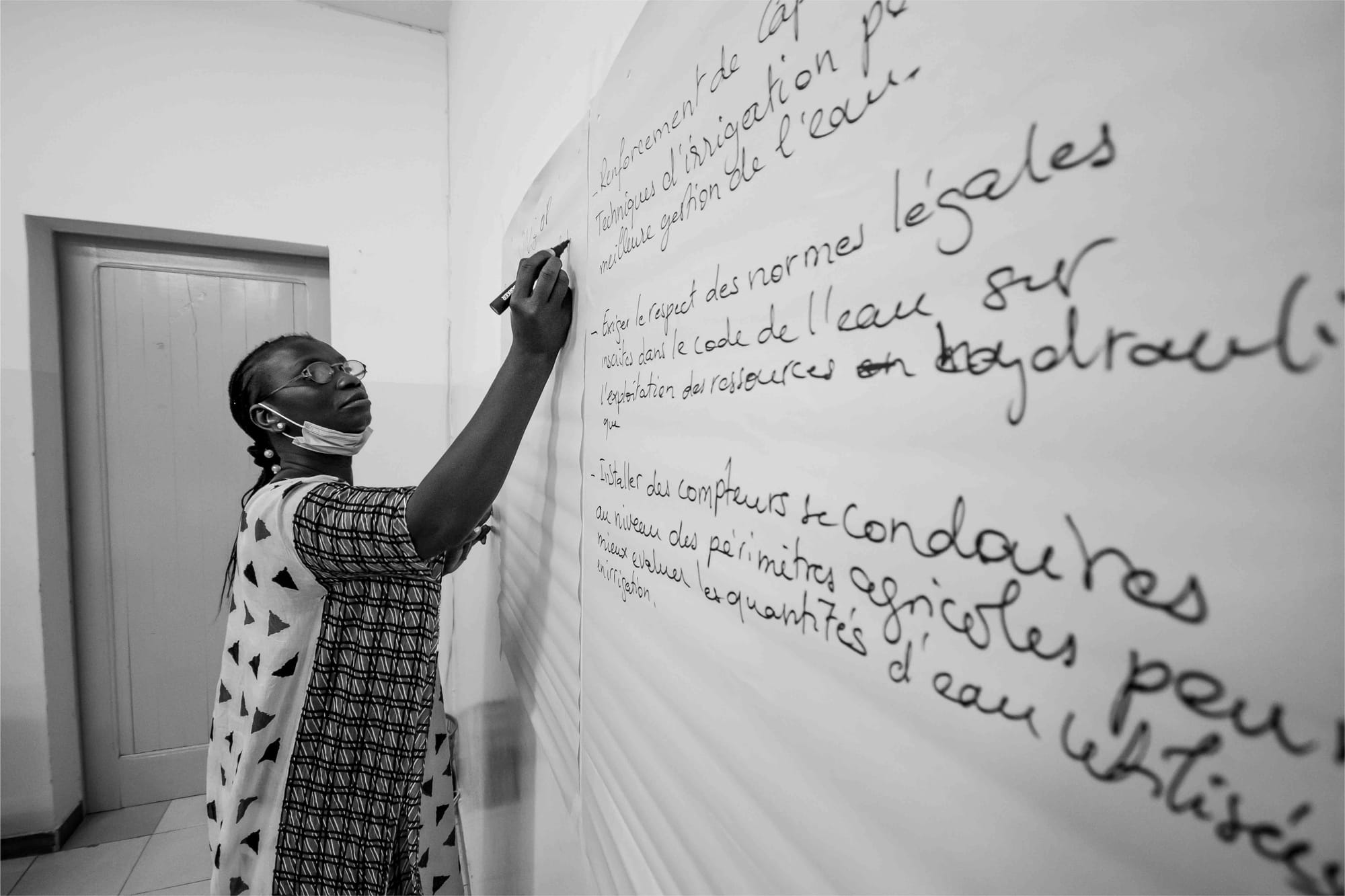
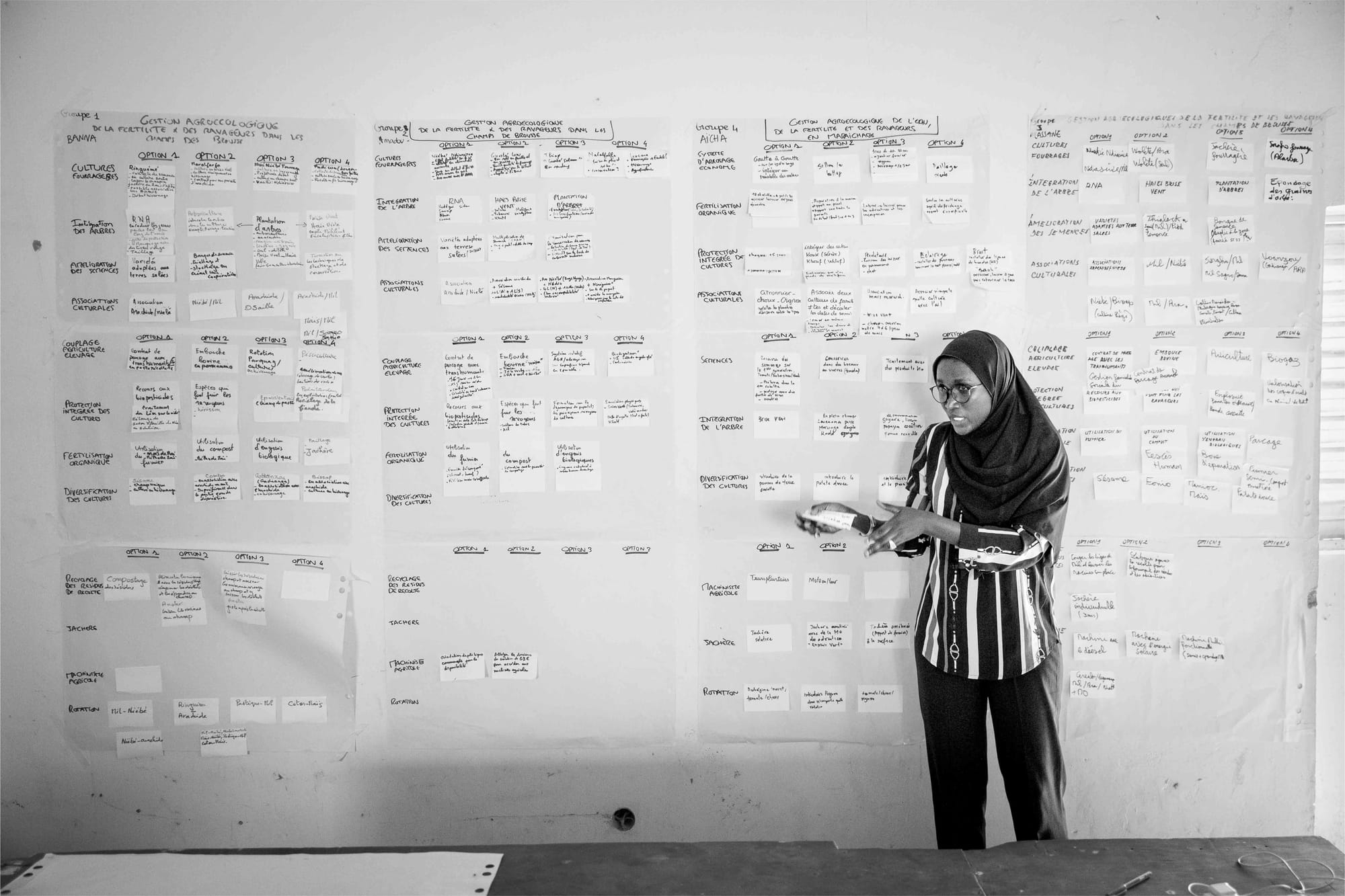
Commitment
Each time, communities show a high level of commitment to the hard work that researchers ask them to do. Their commitment is probably motivated by an awareness of the urgent need to innovate, in a context of climate change and rapid degradation of natural resources.
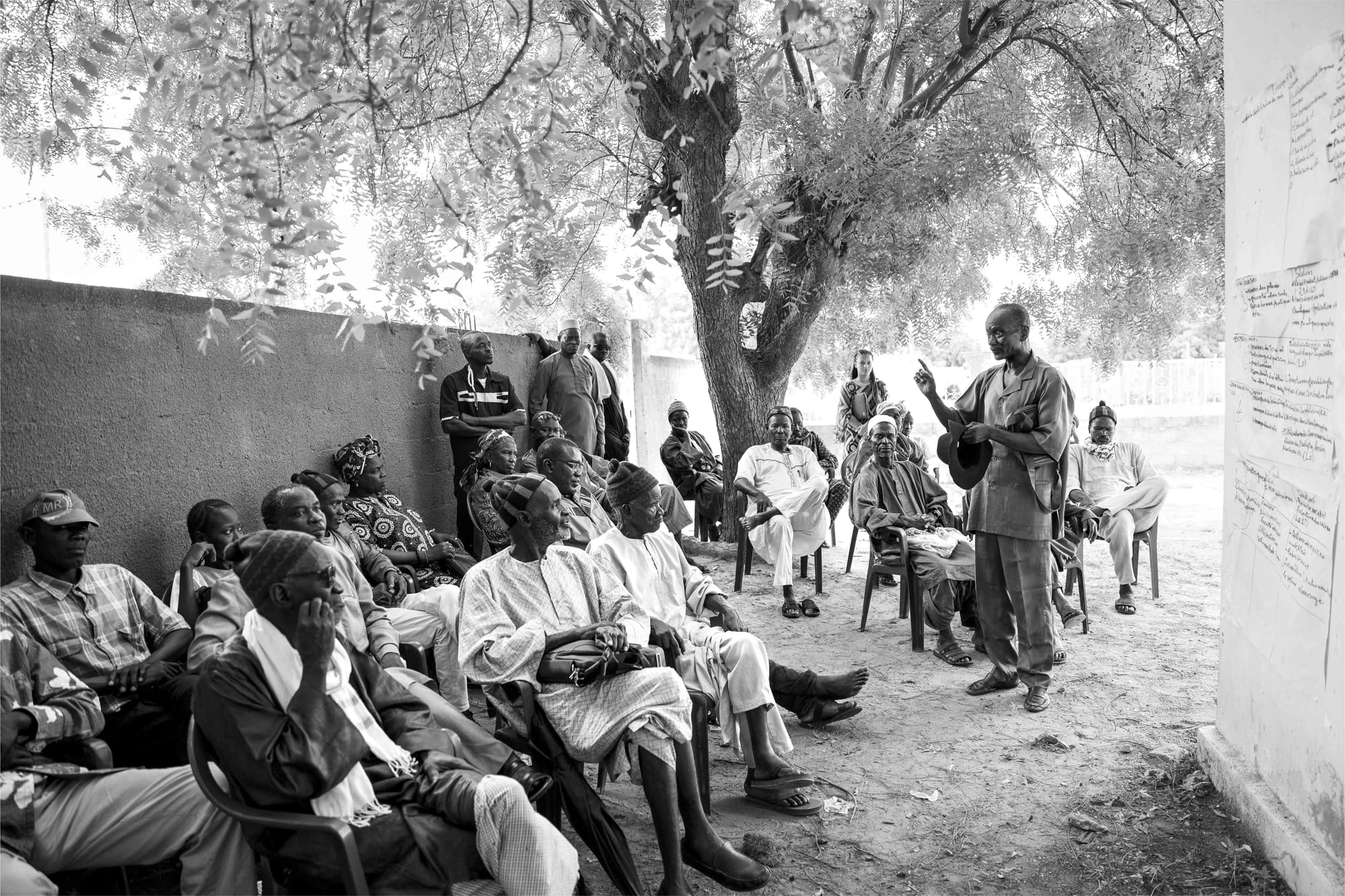
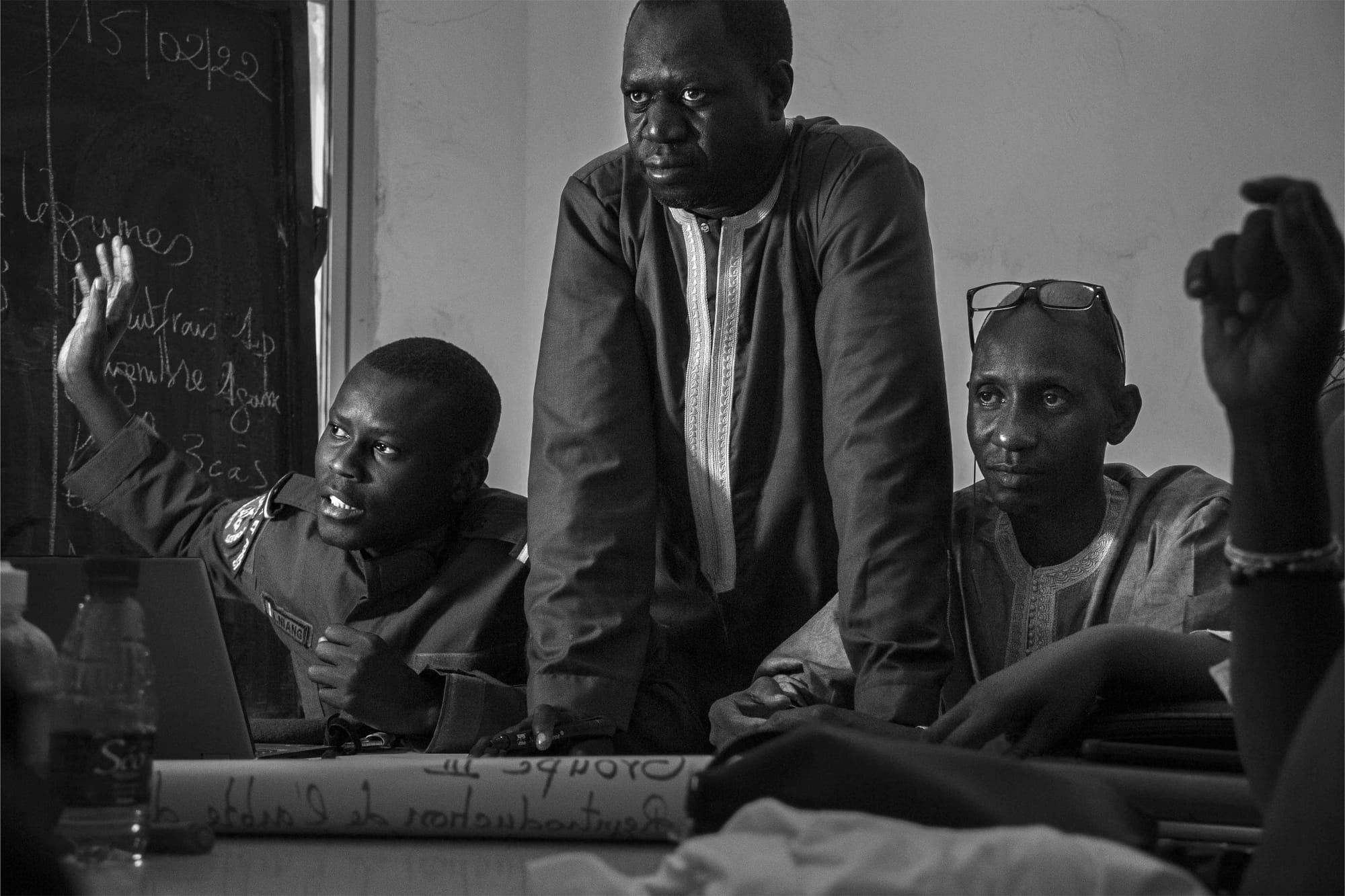
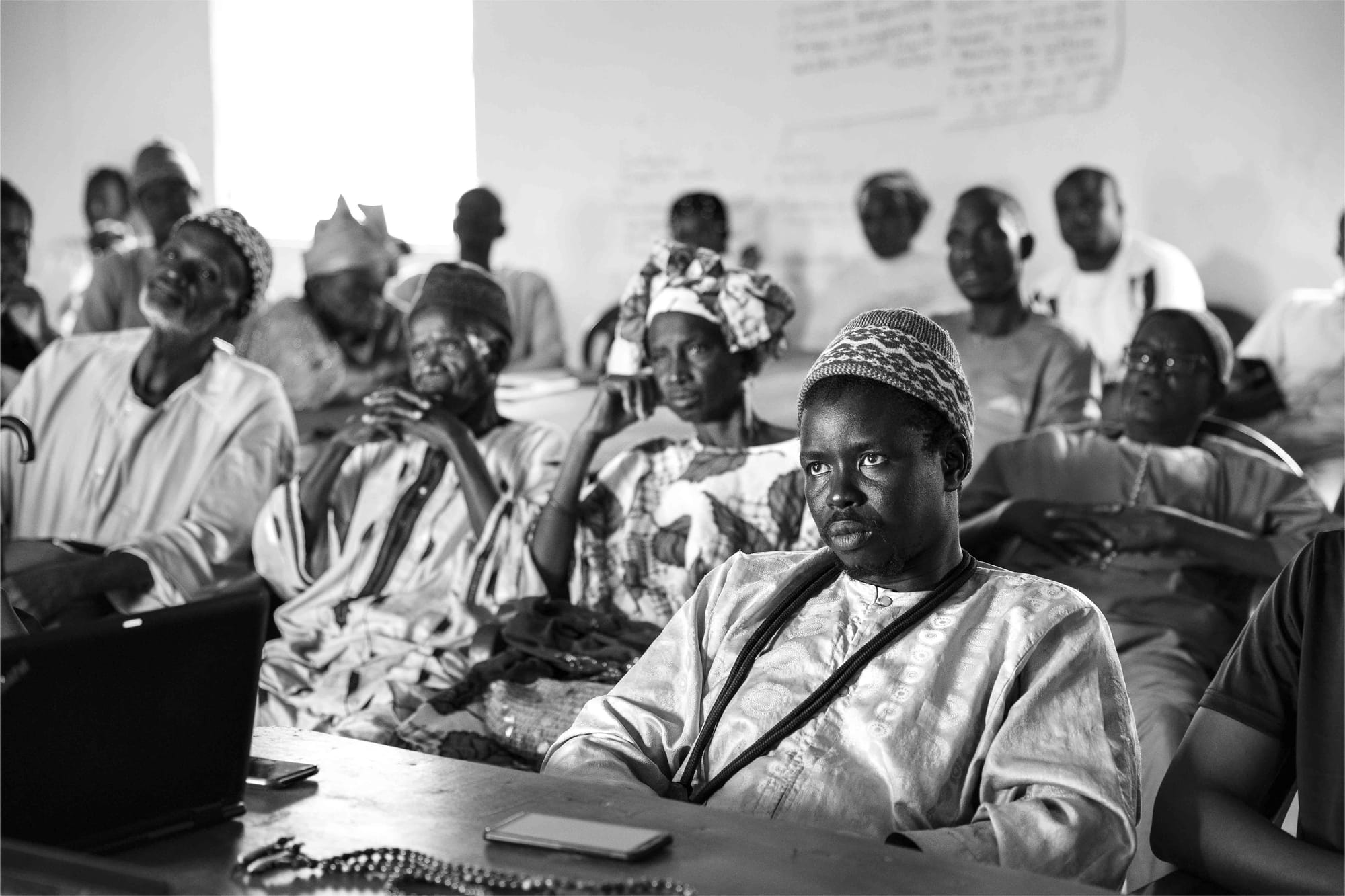
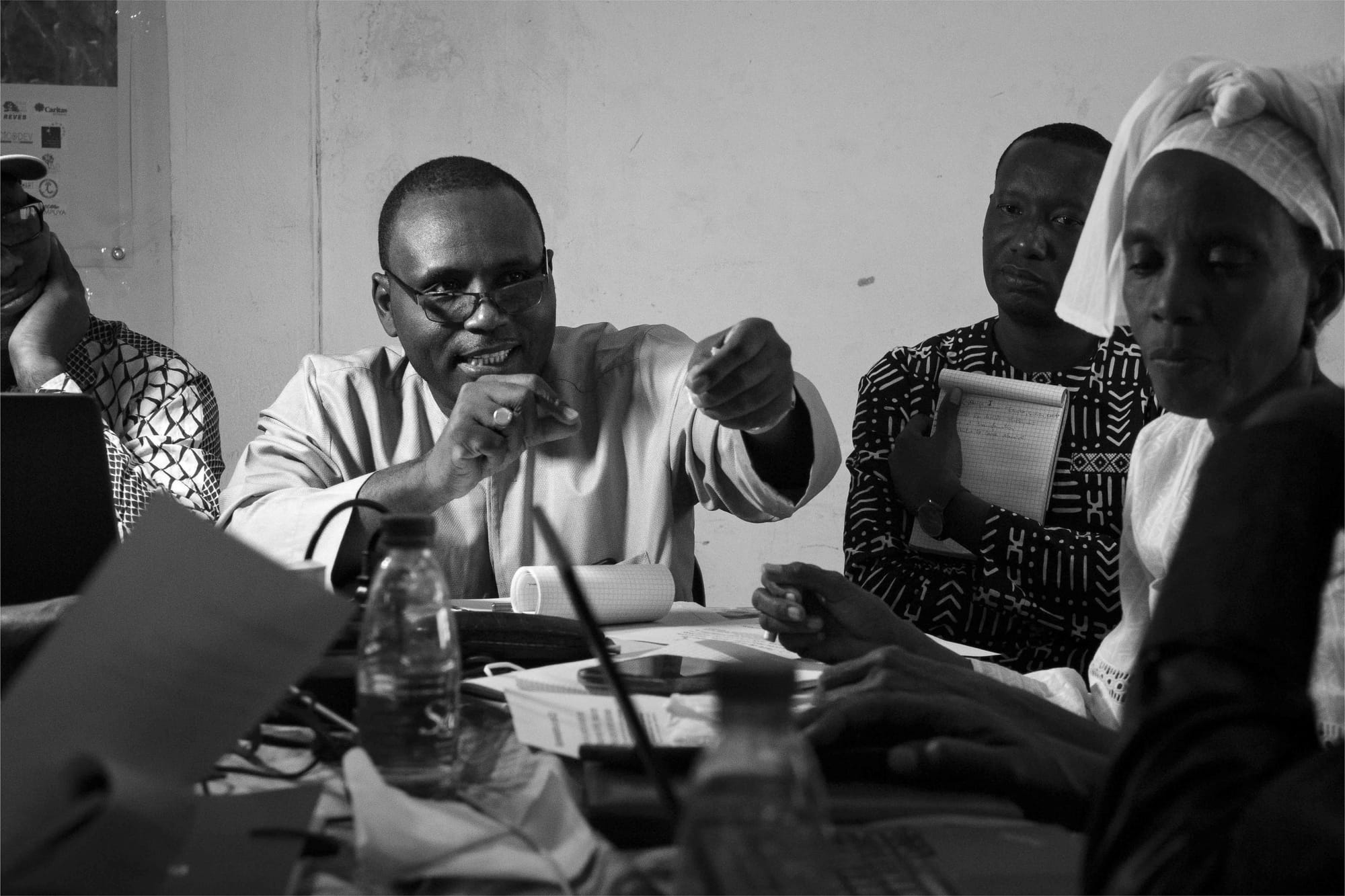
Foreigners
The workshops generally take place in the local language. So when foreign researchers participate in a workshop, they often stay away from the facilitation process.
